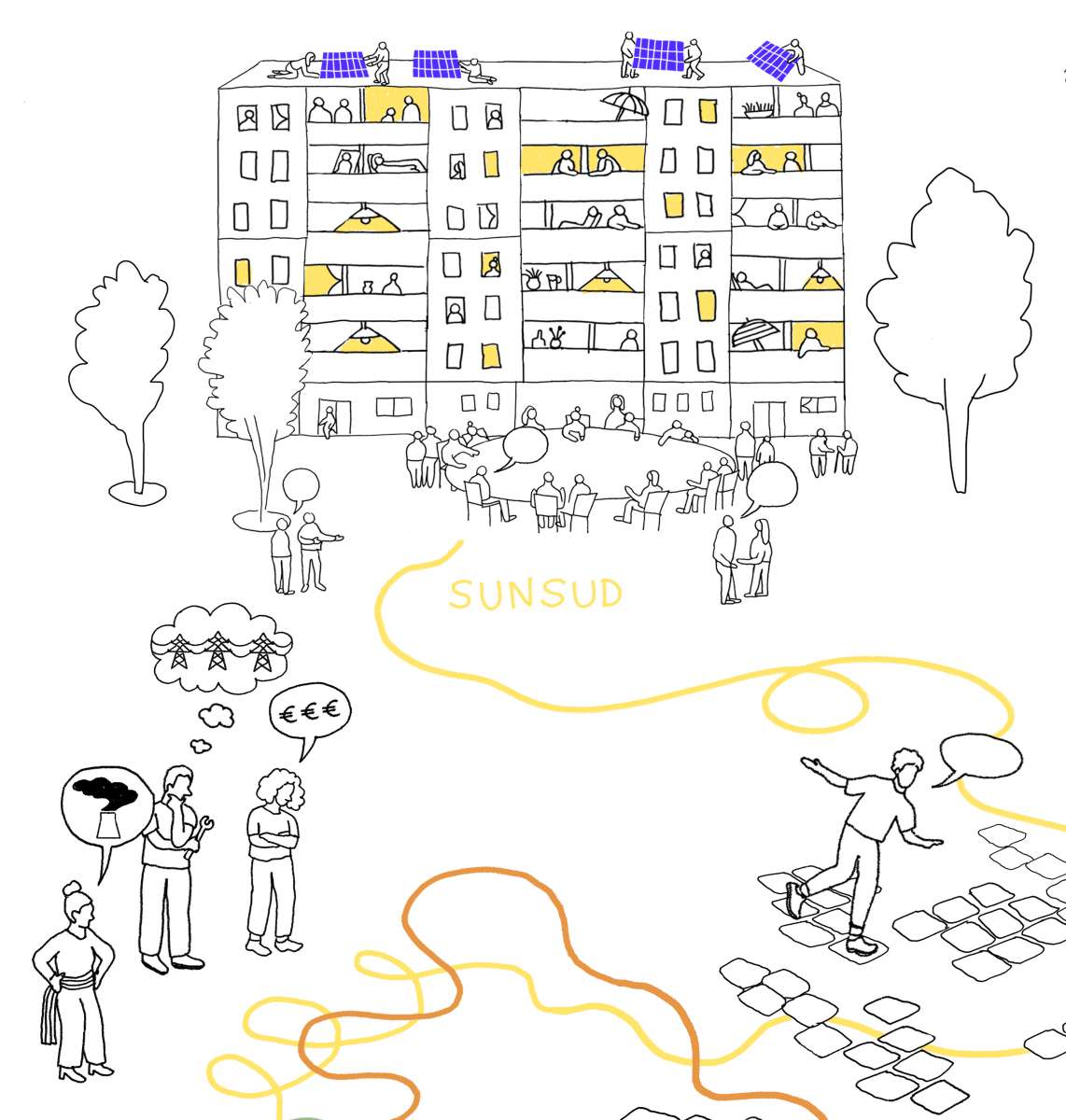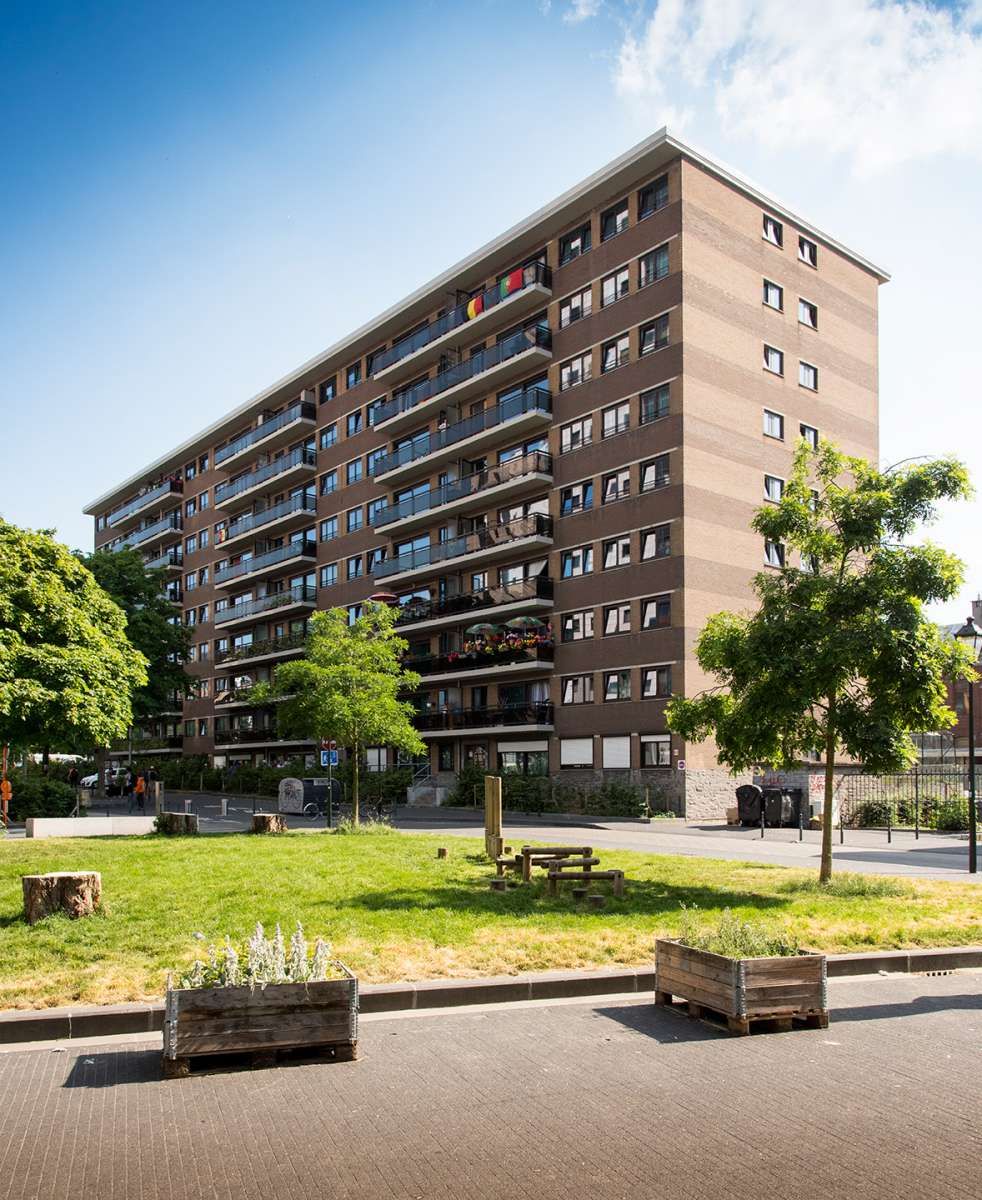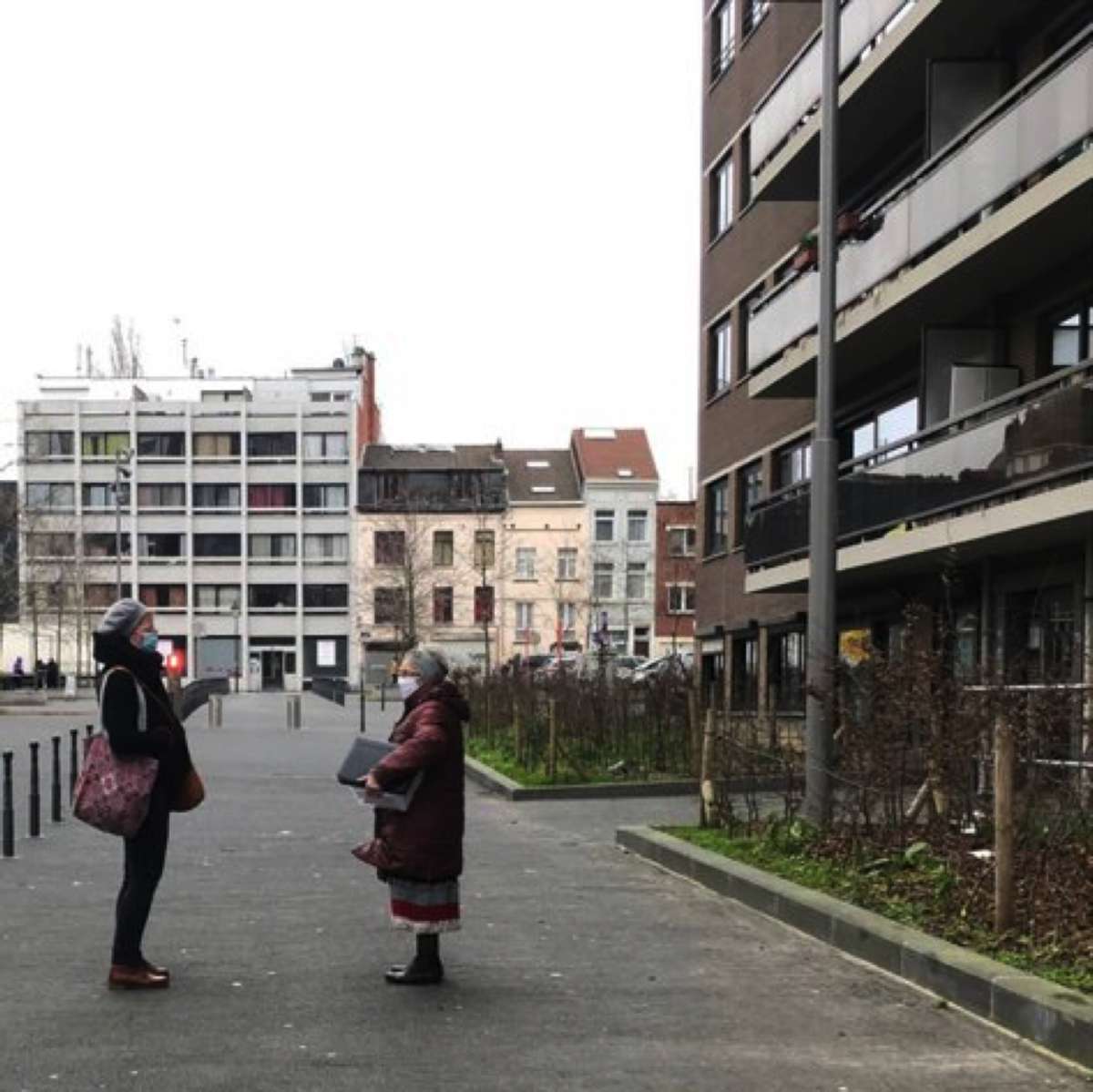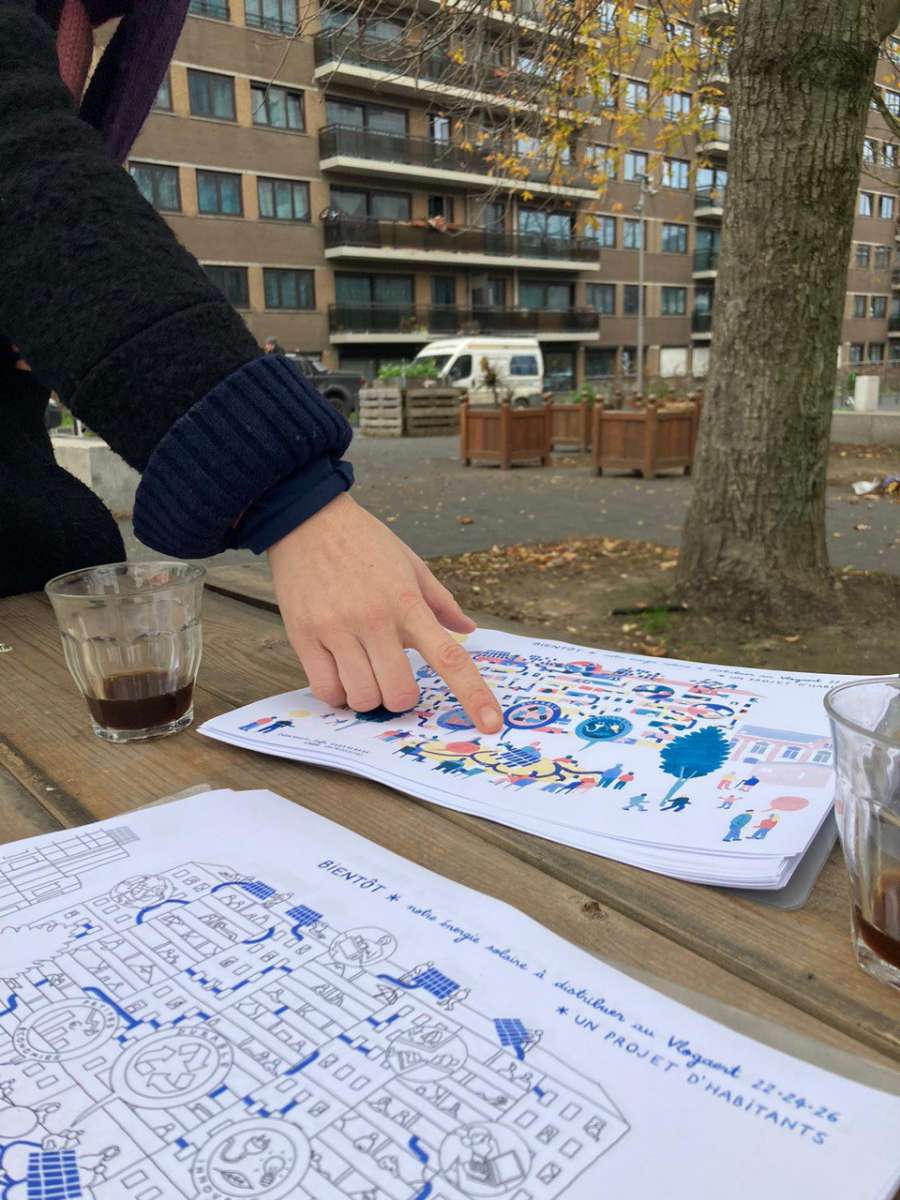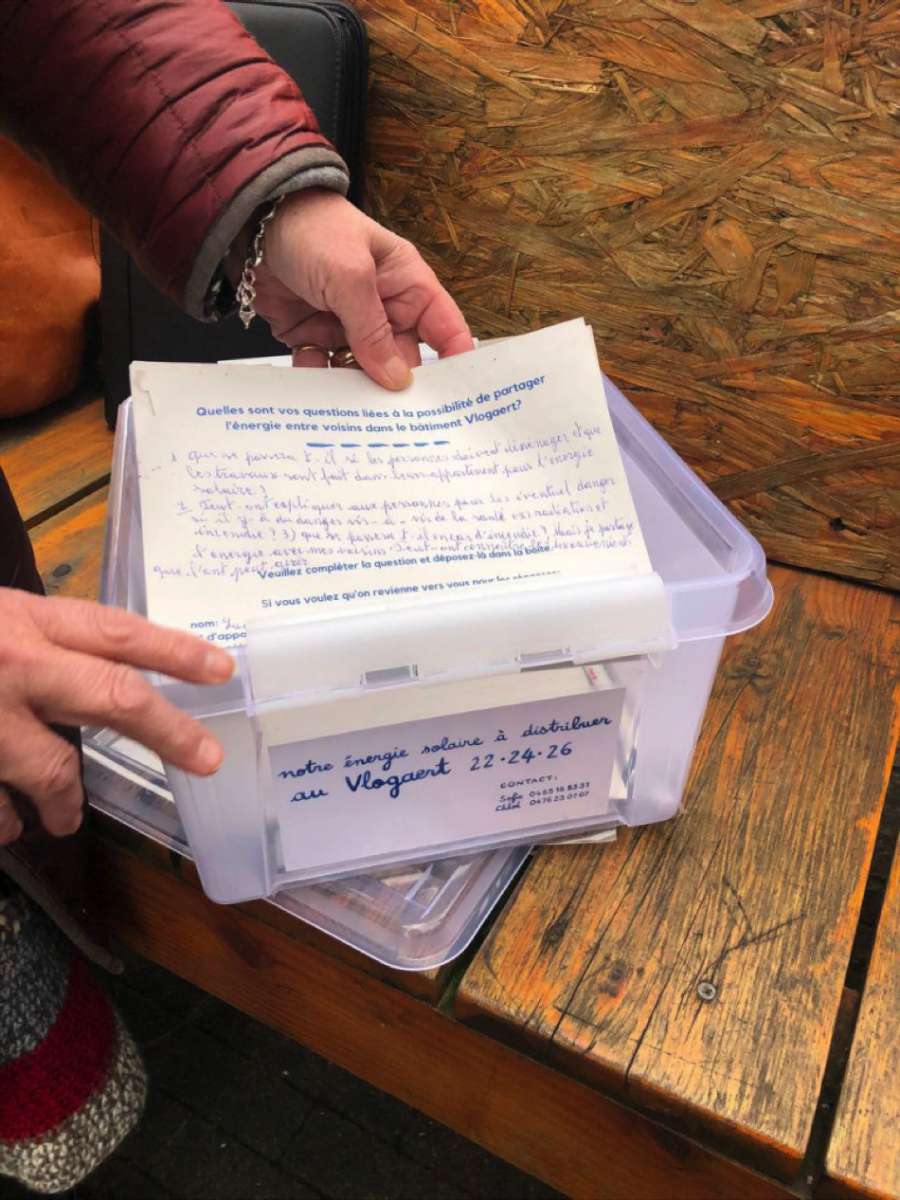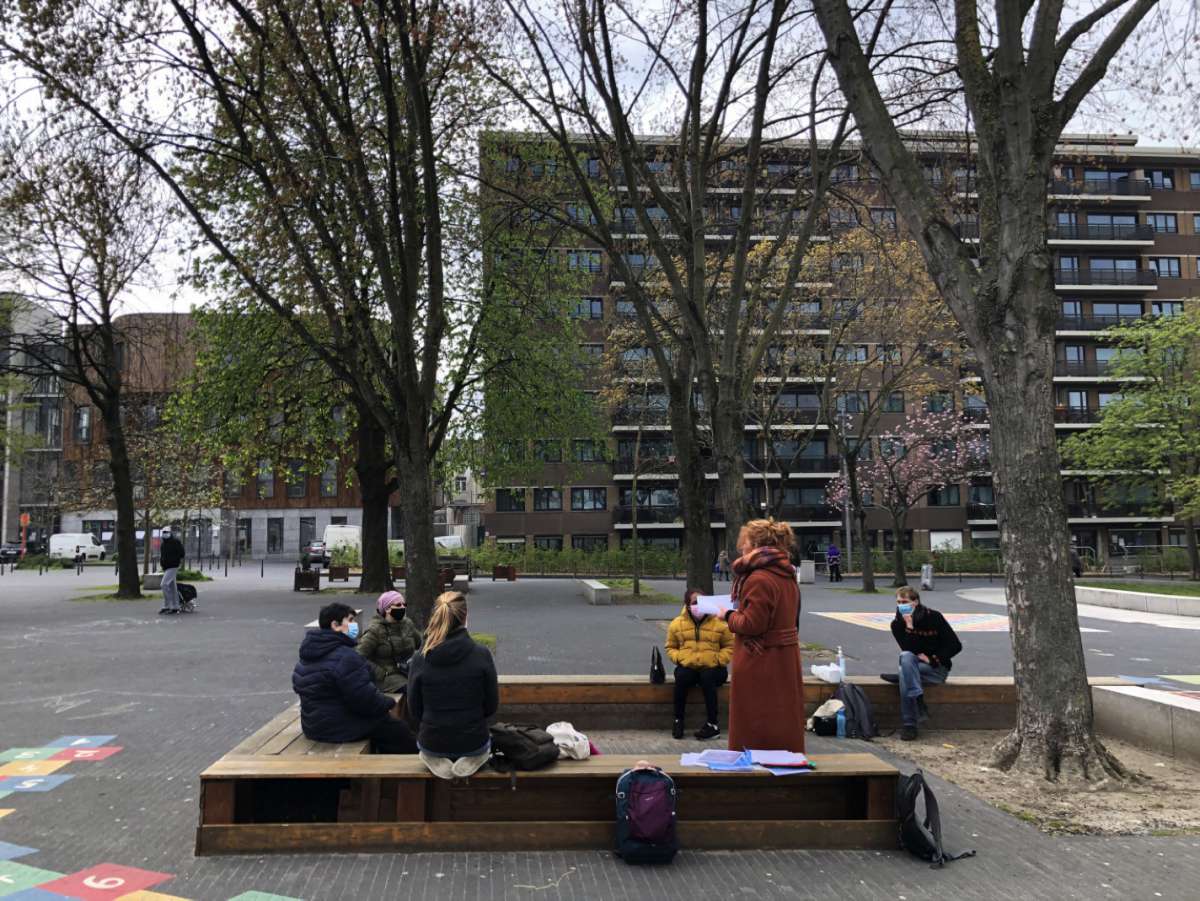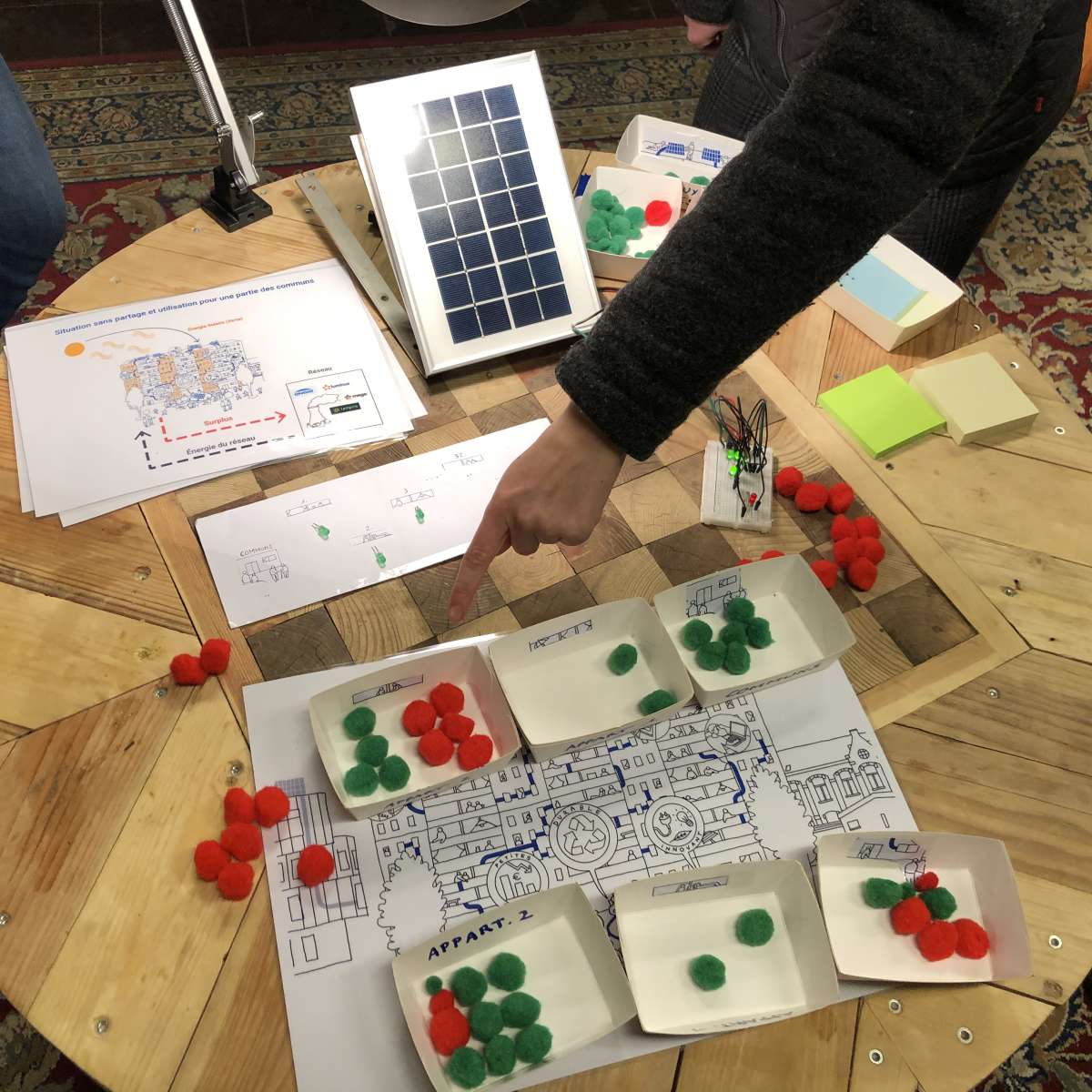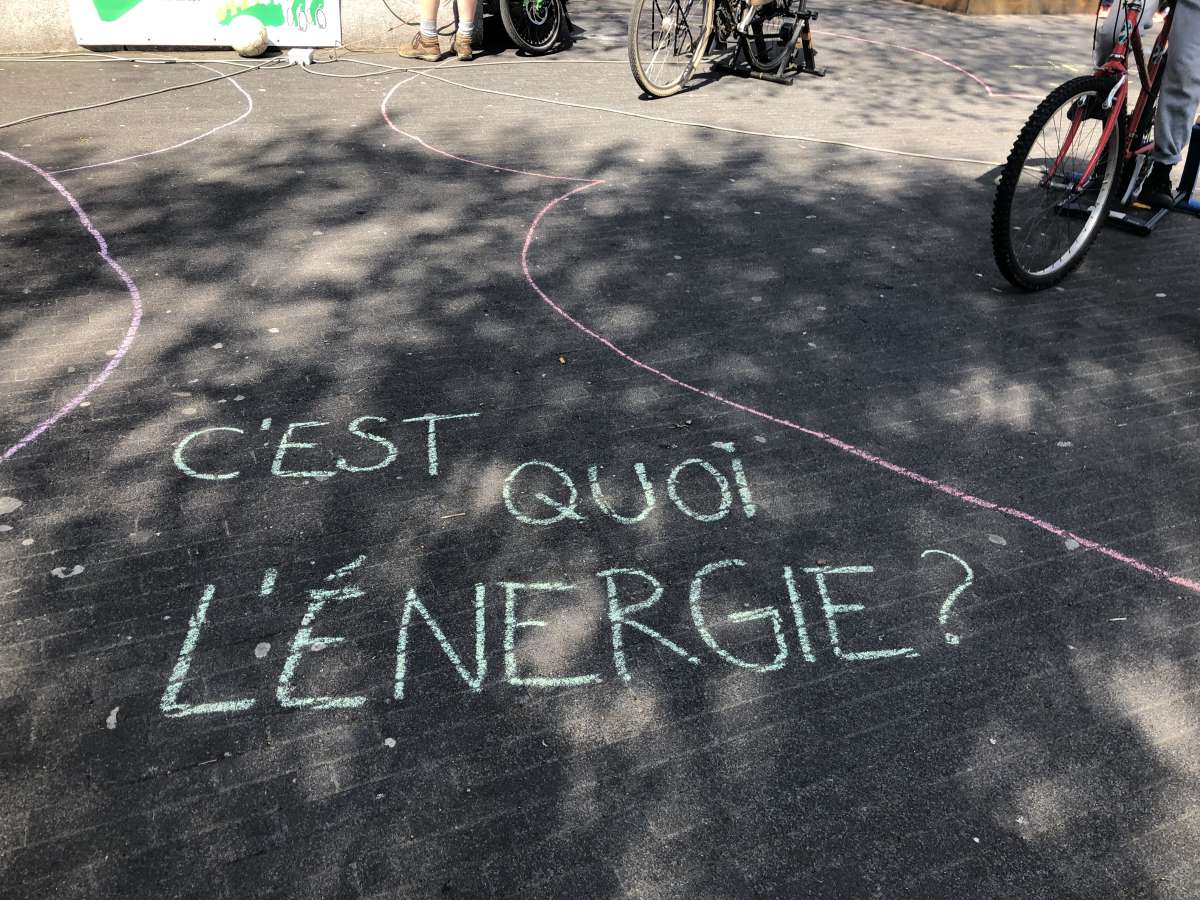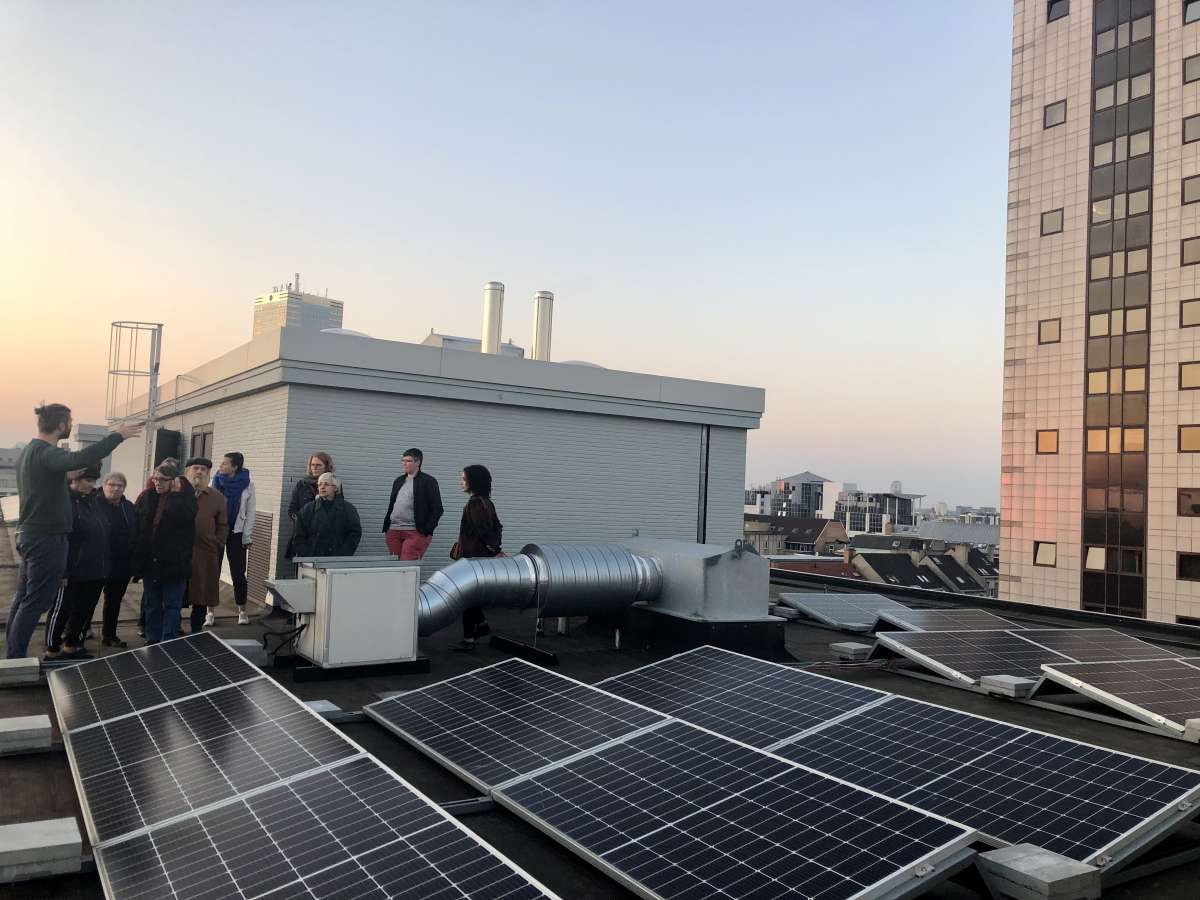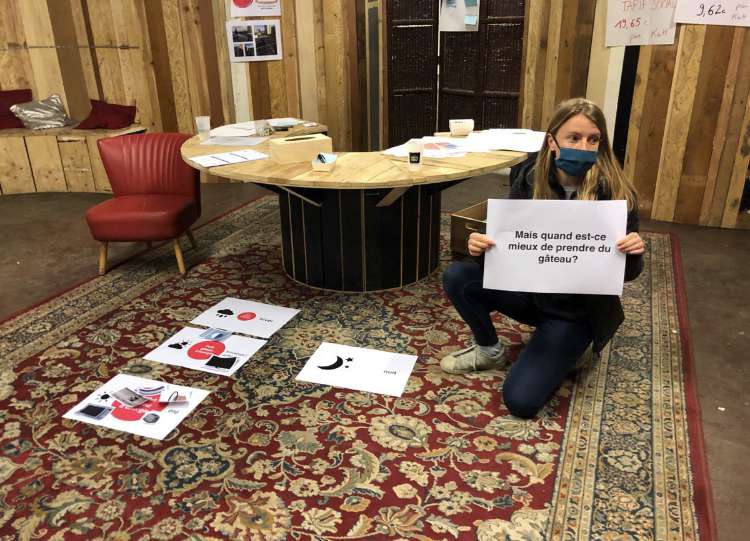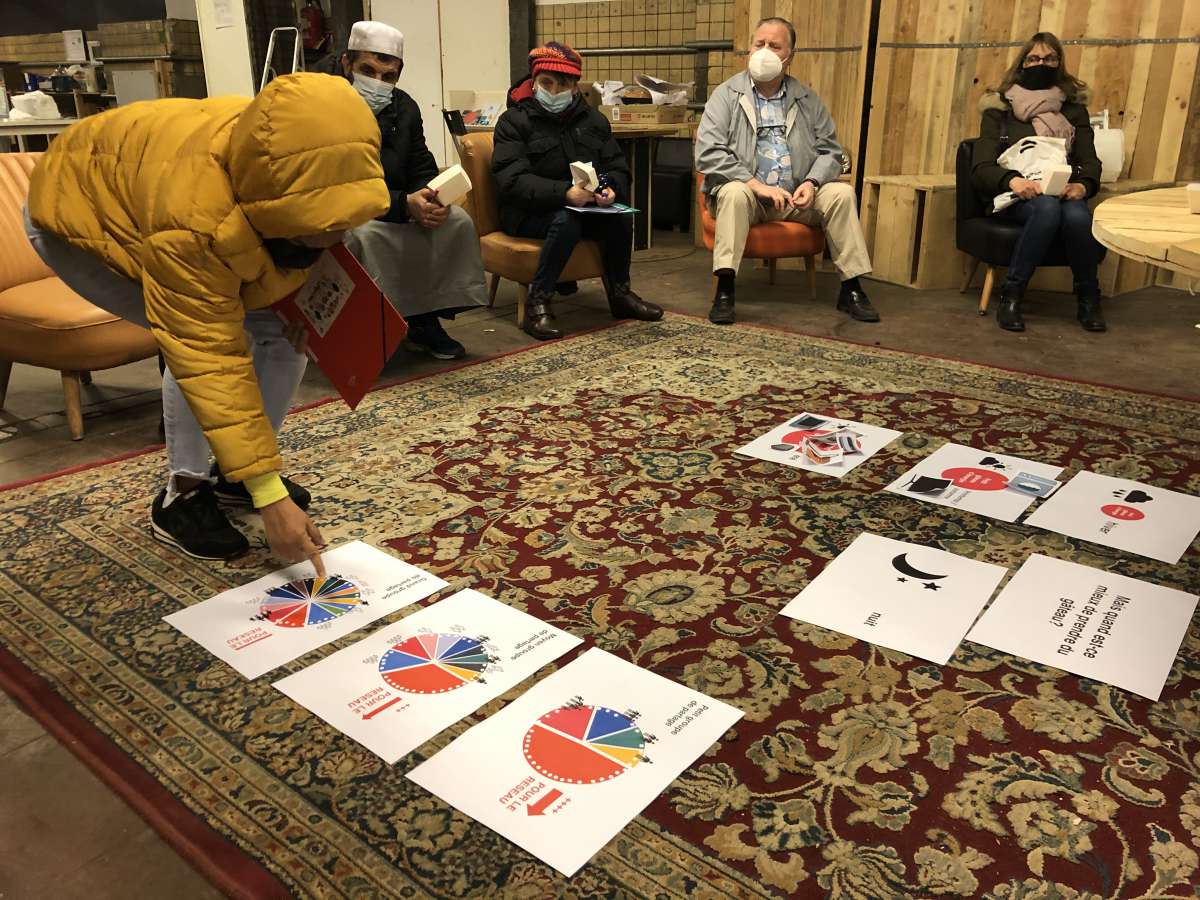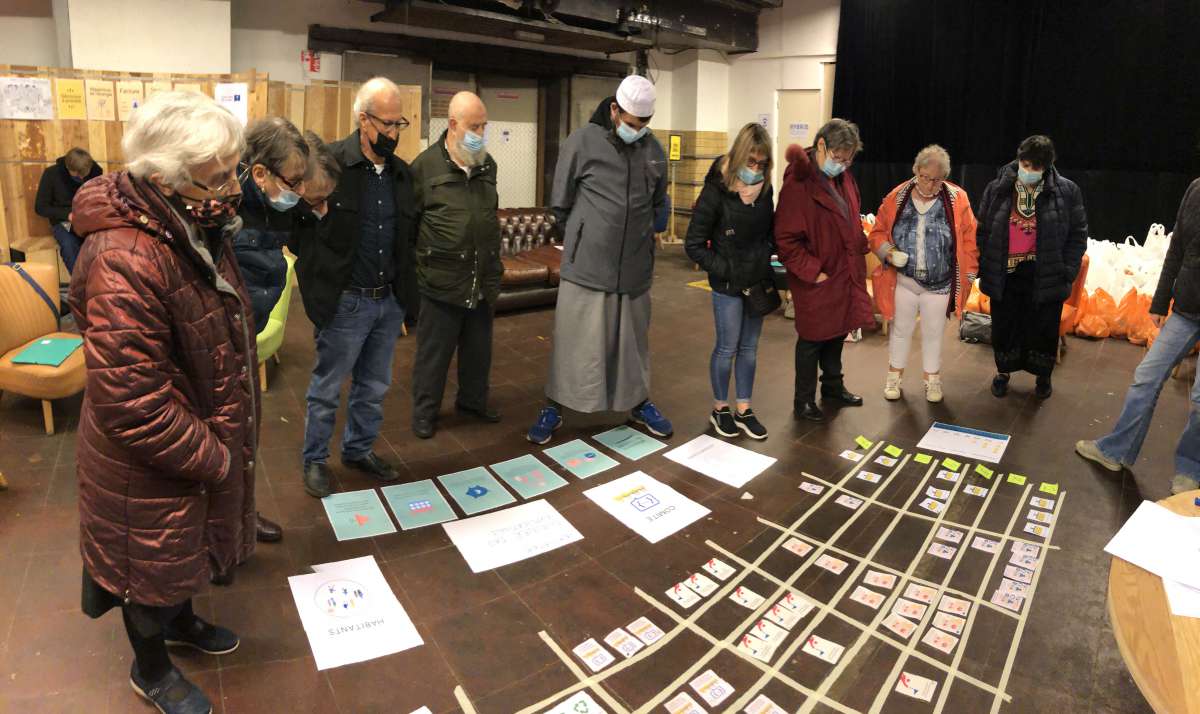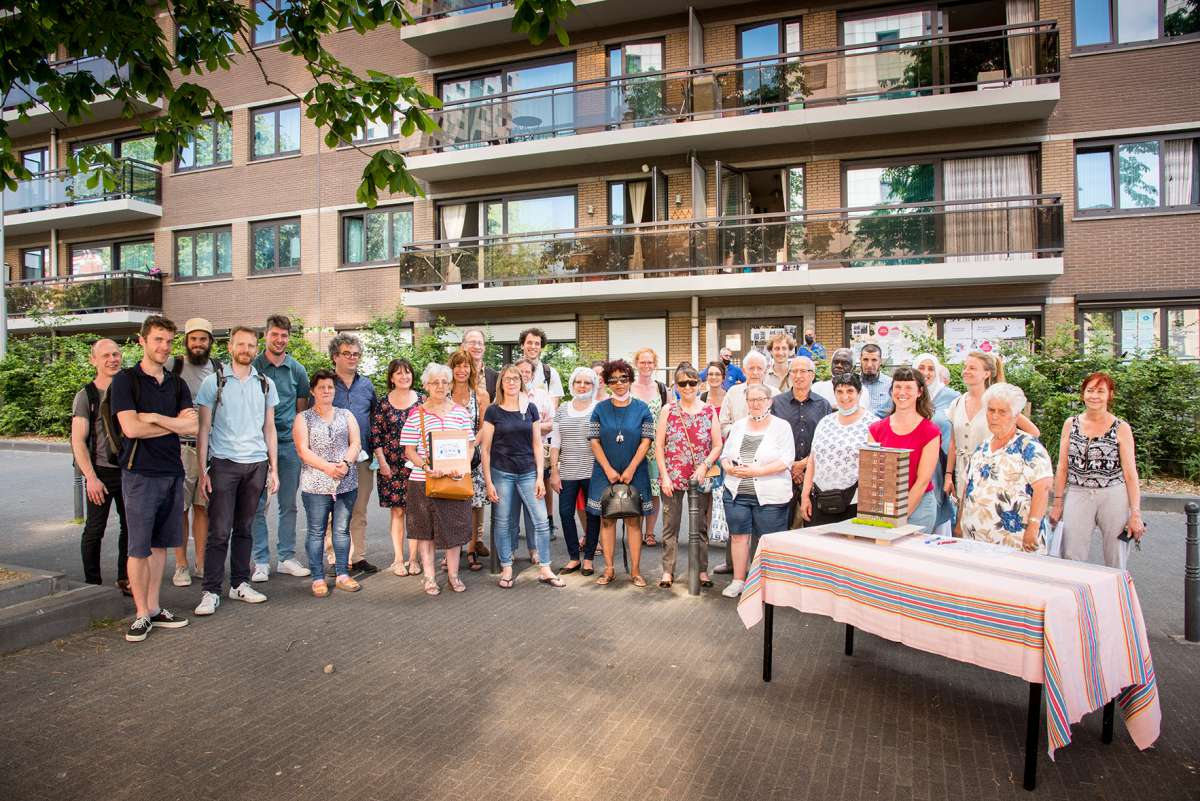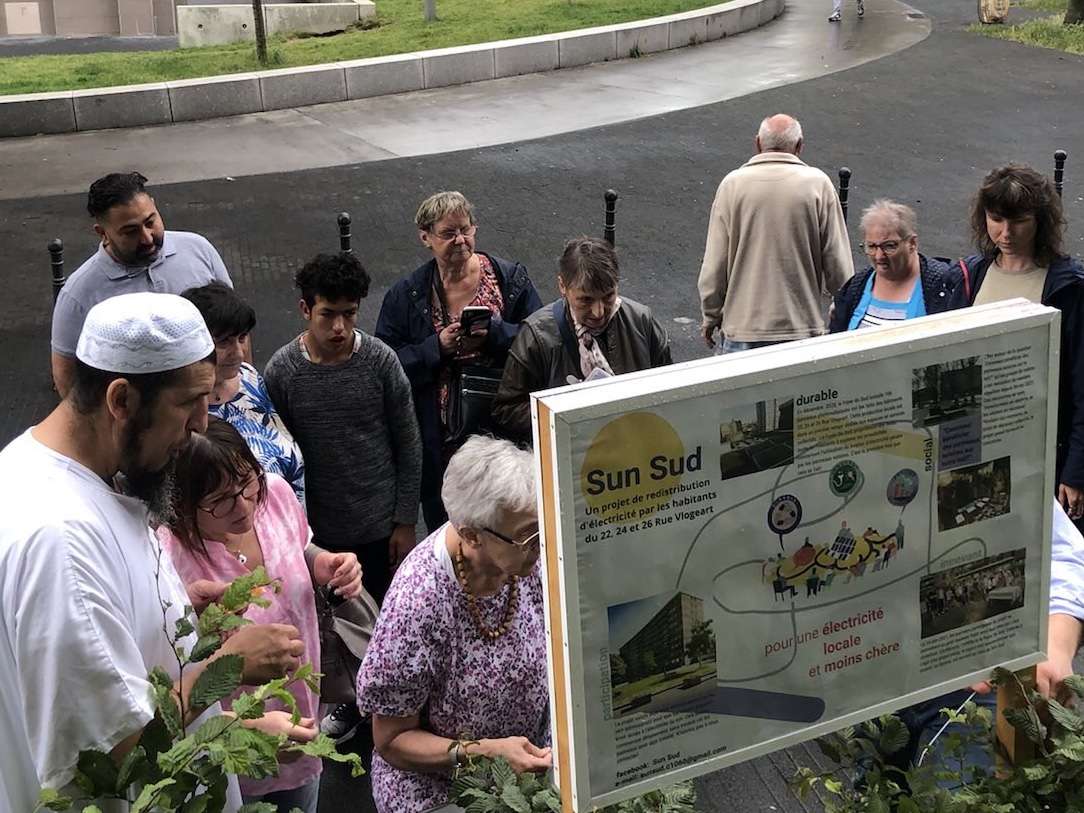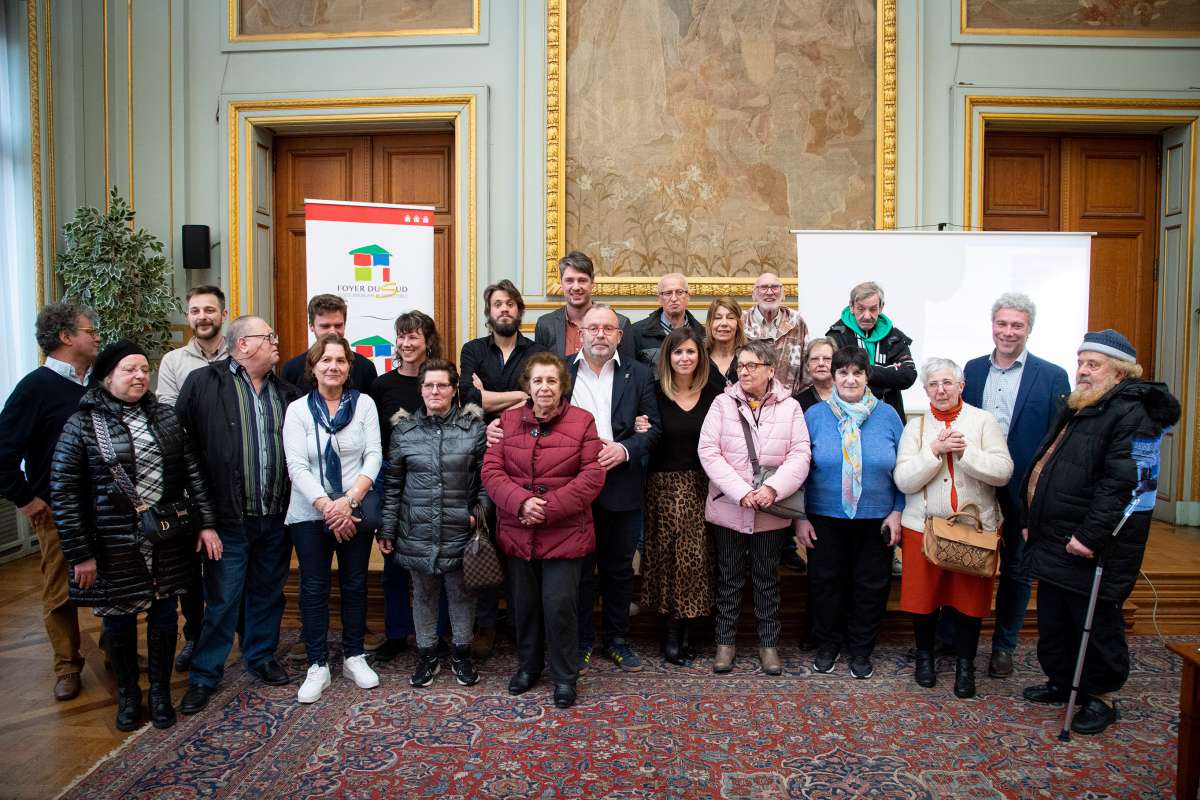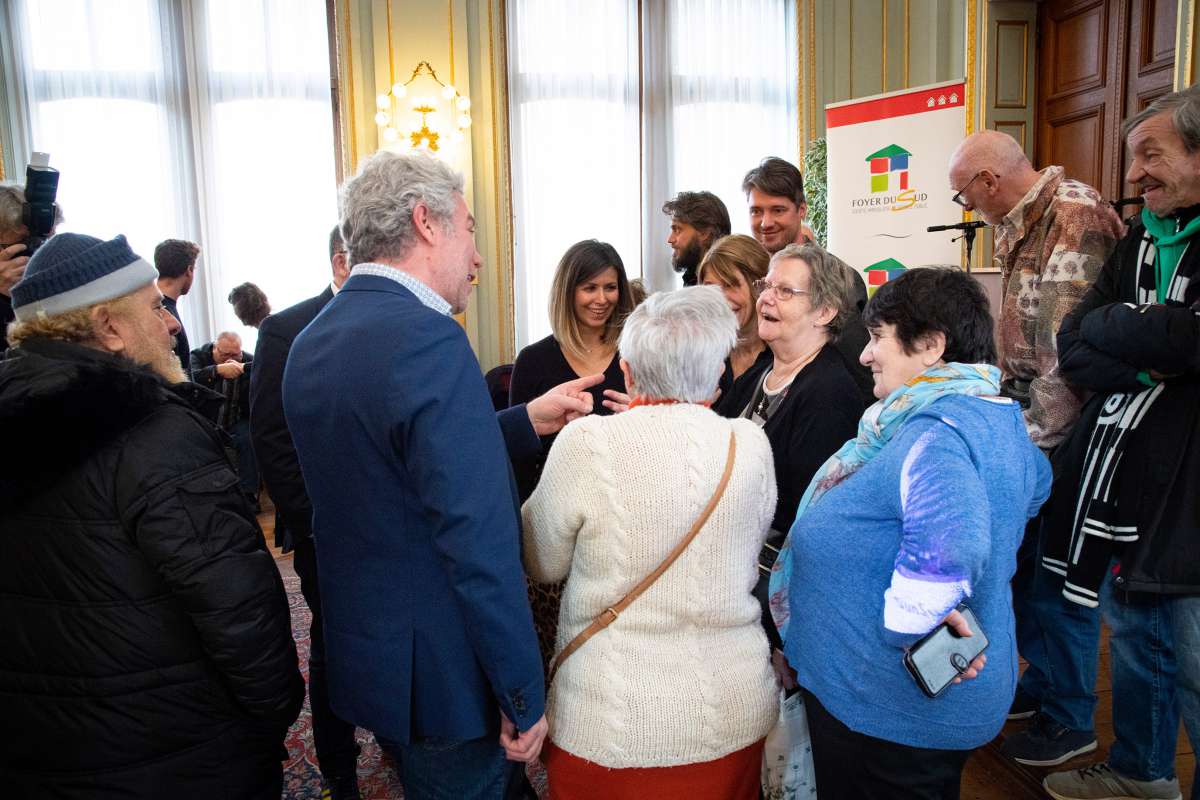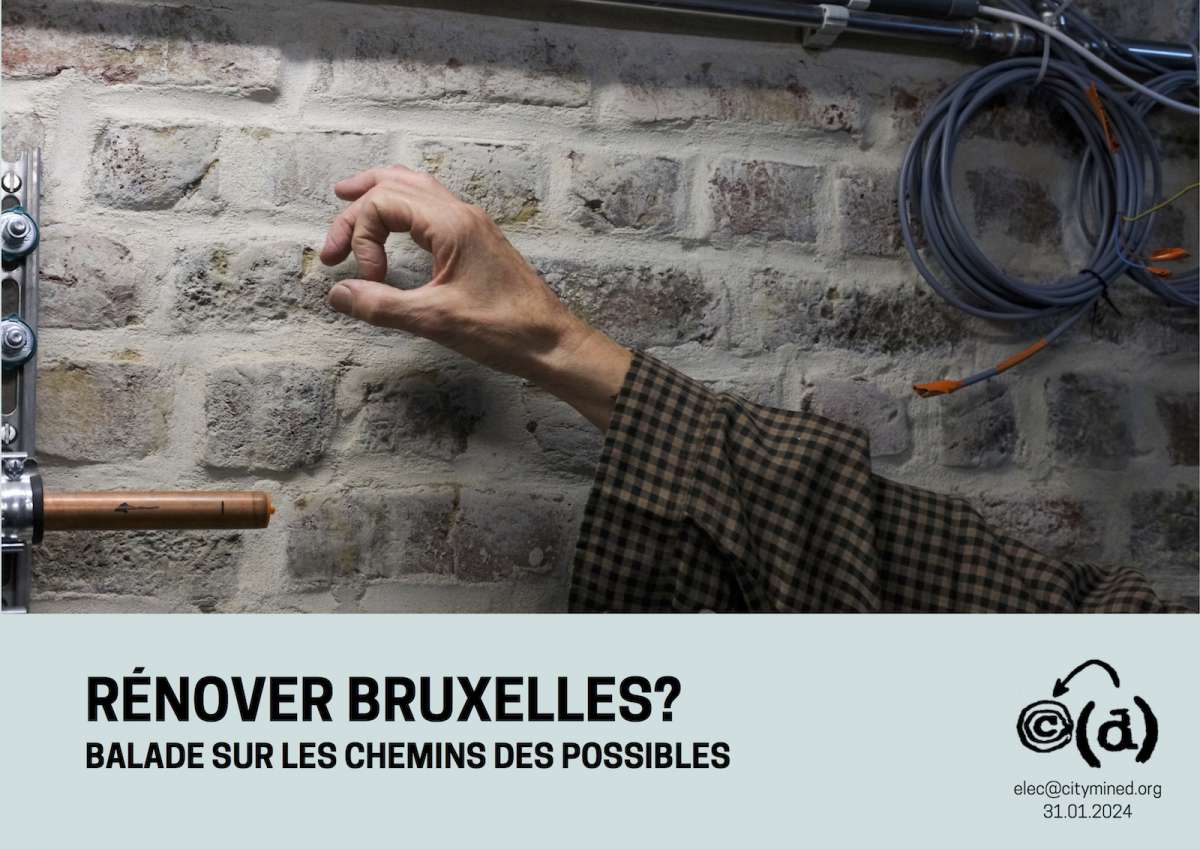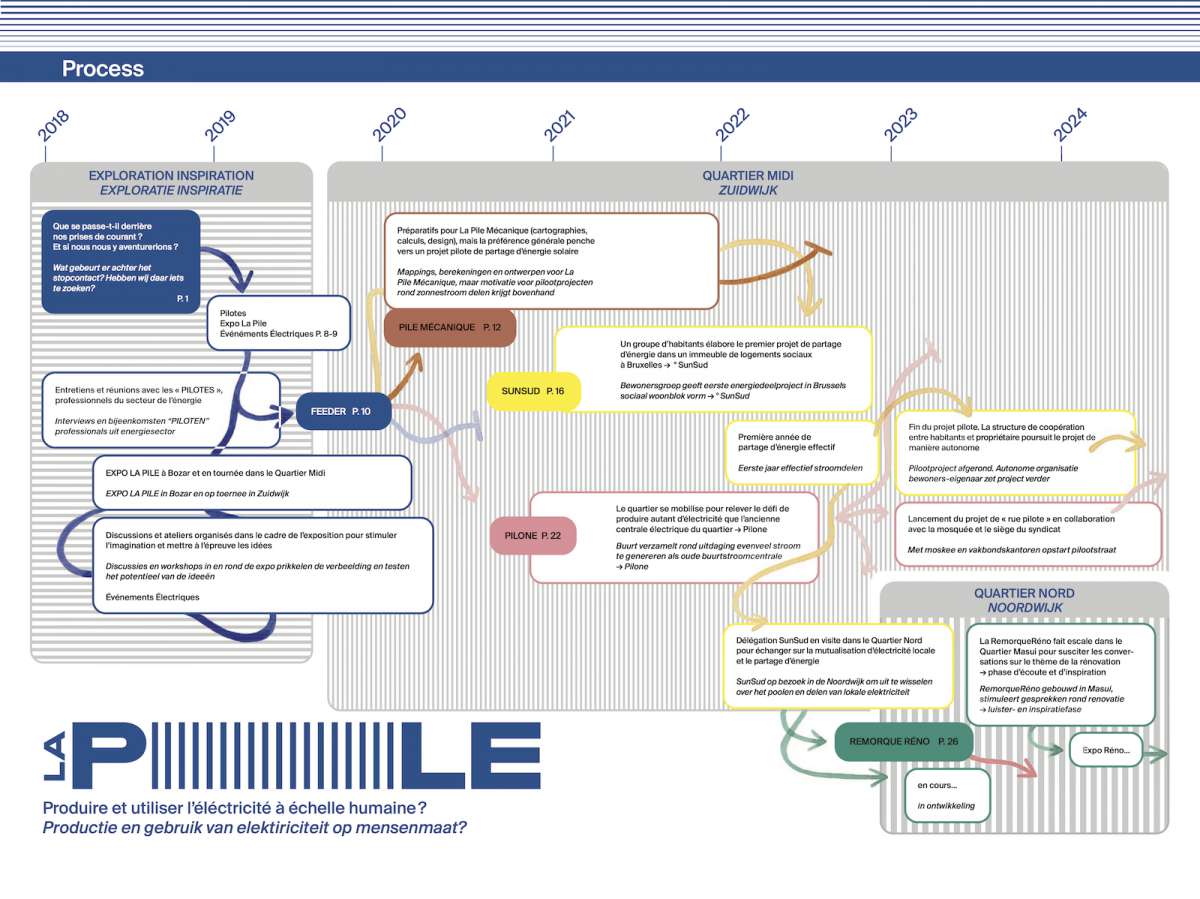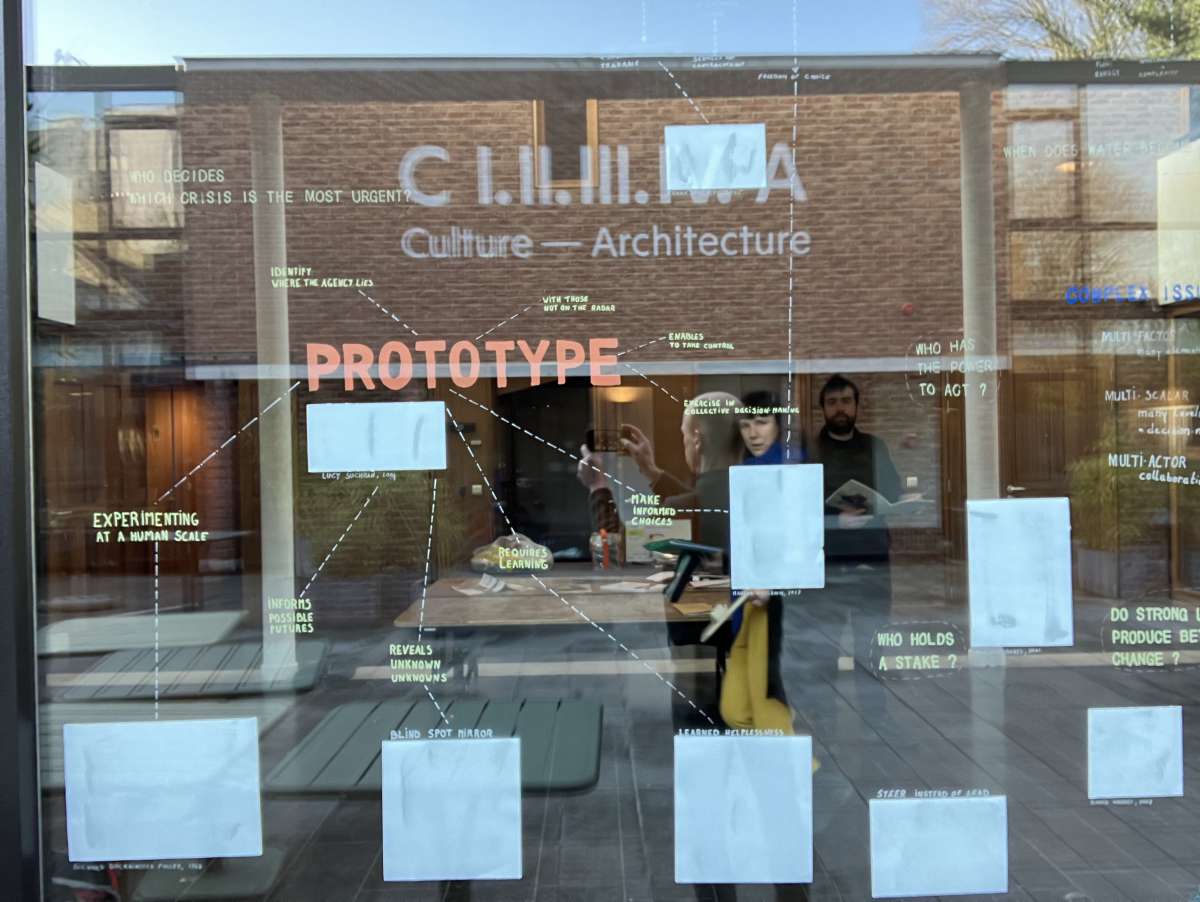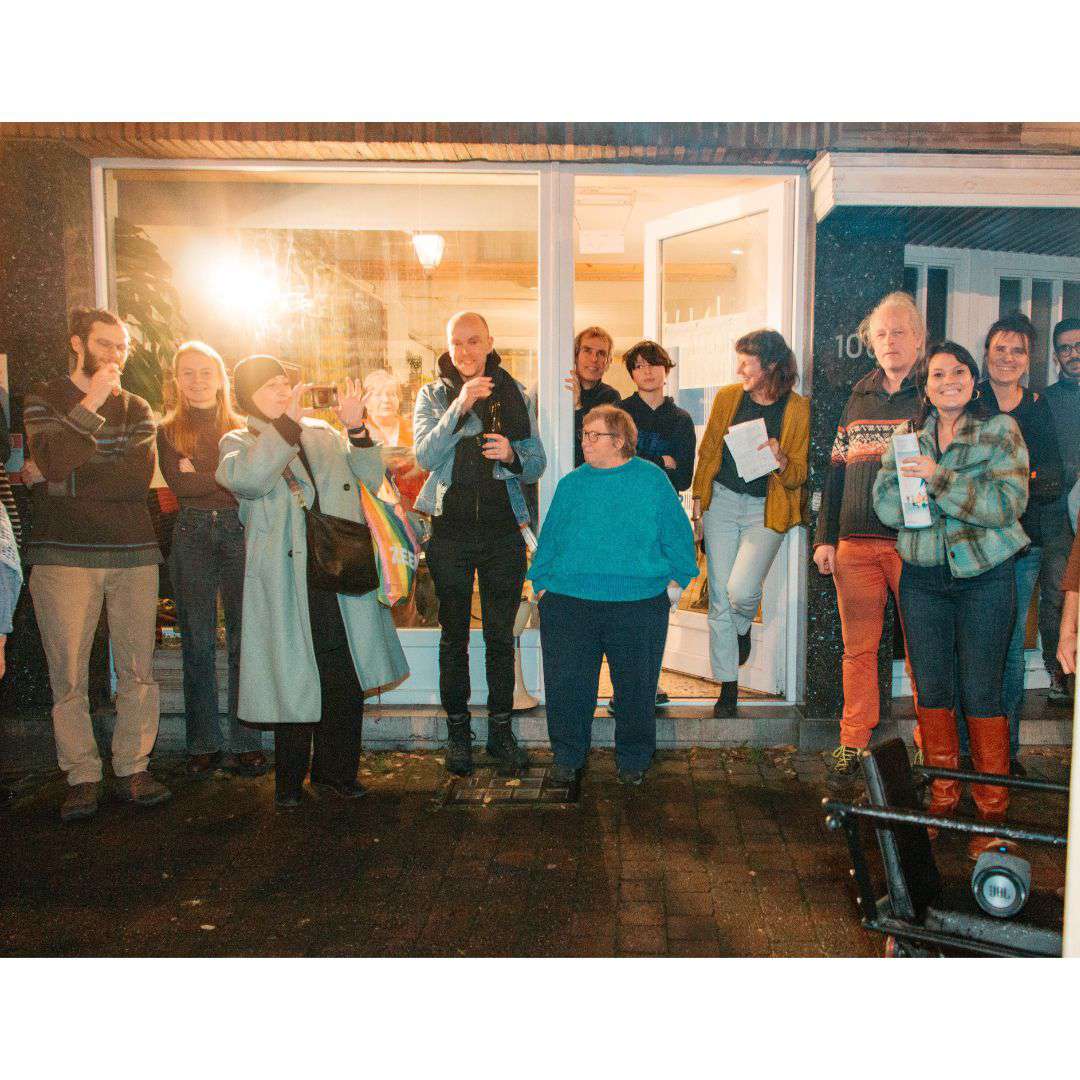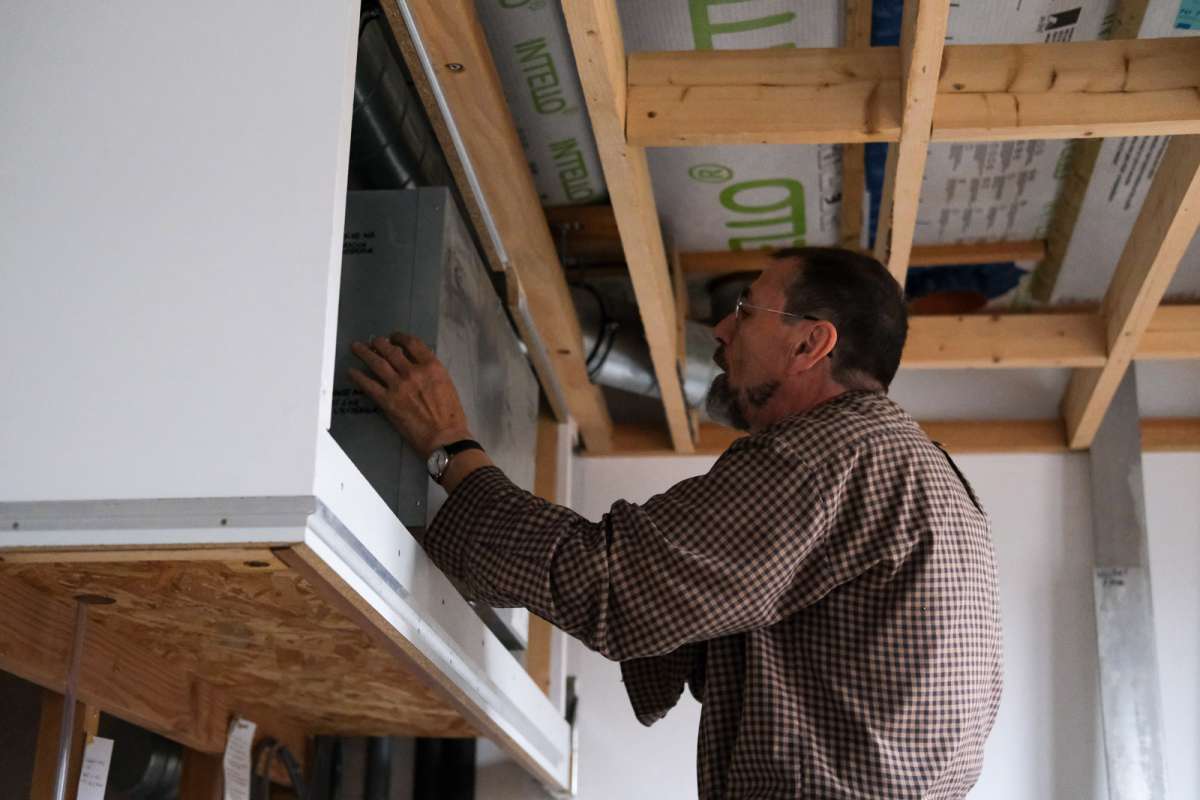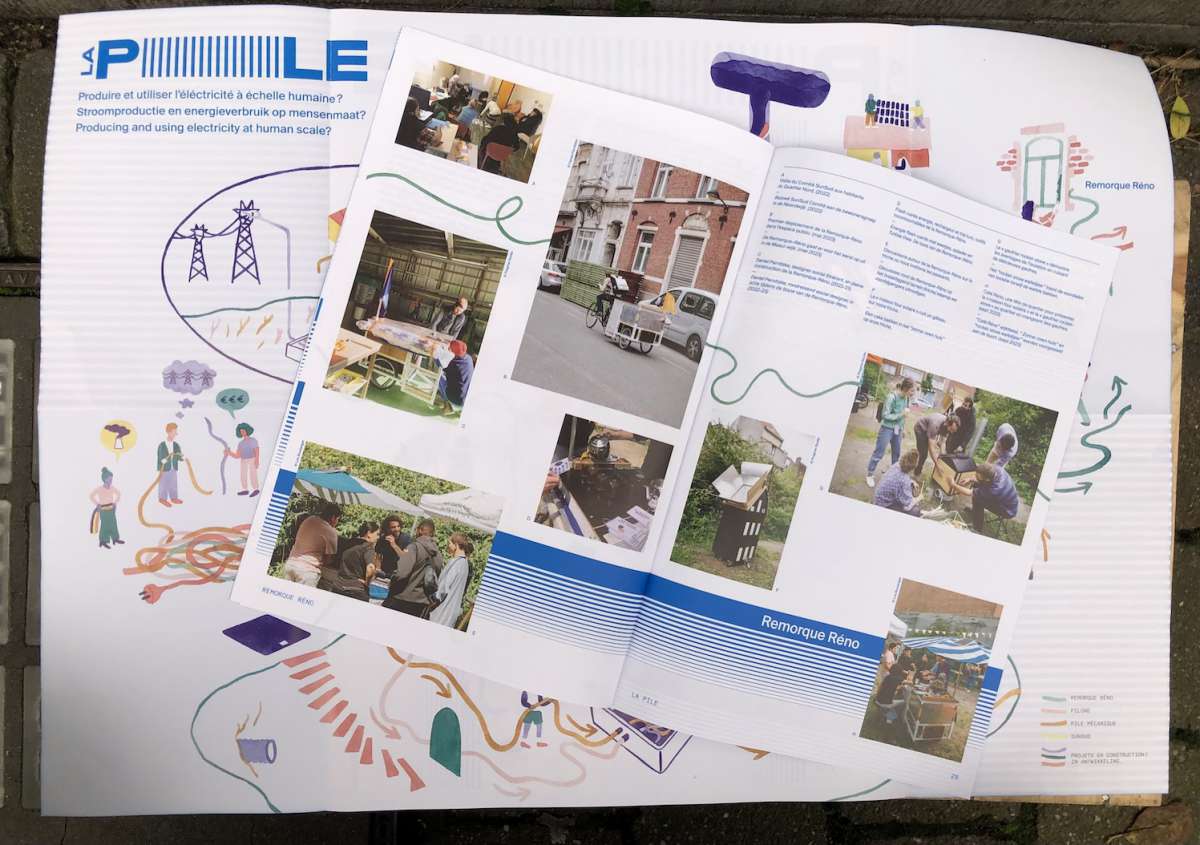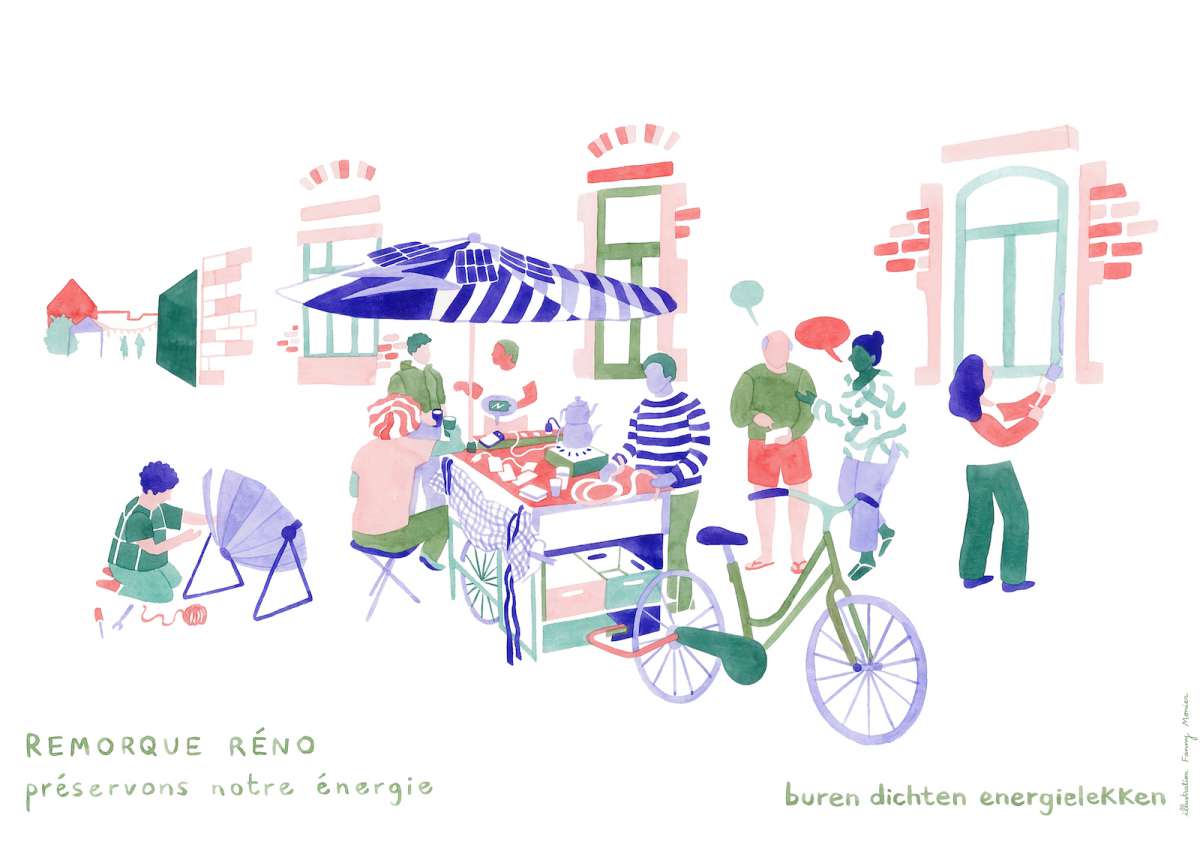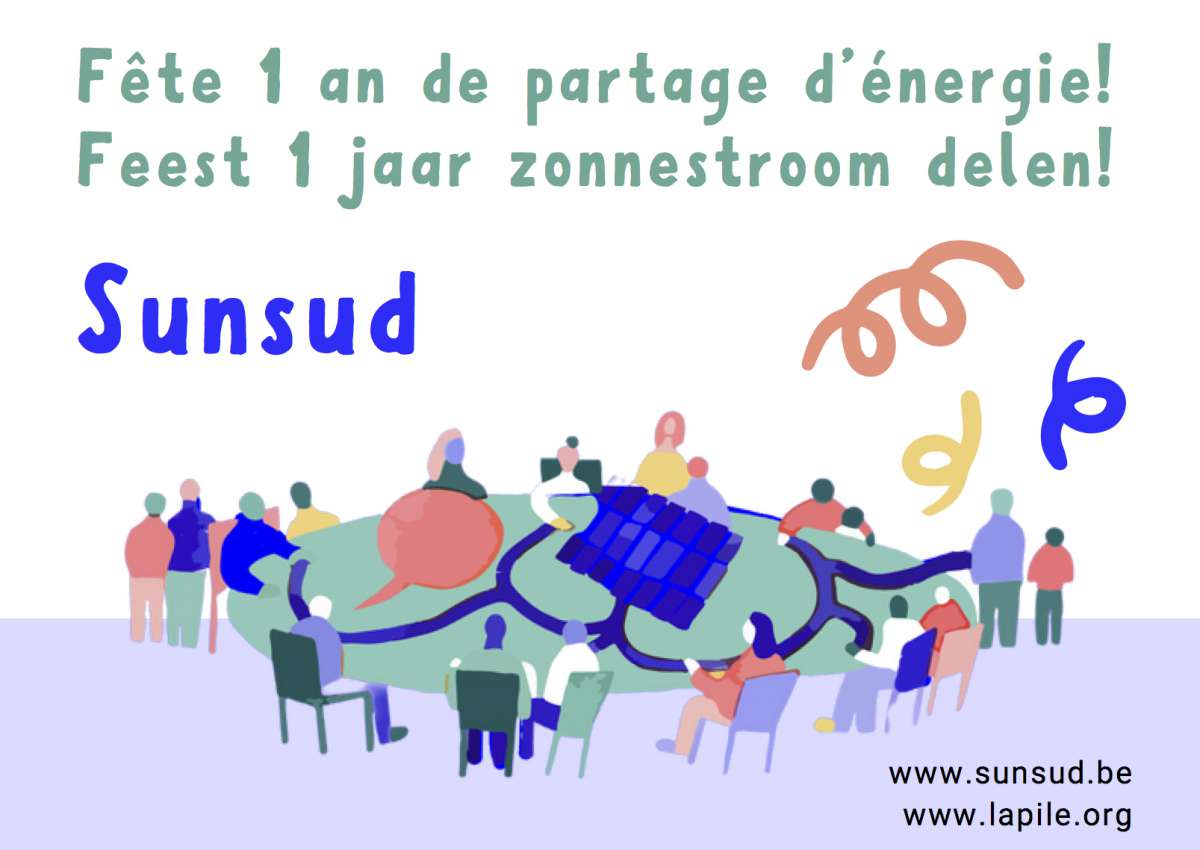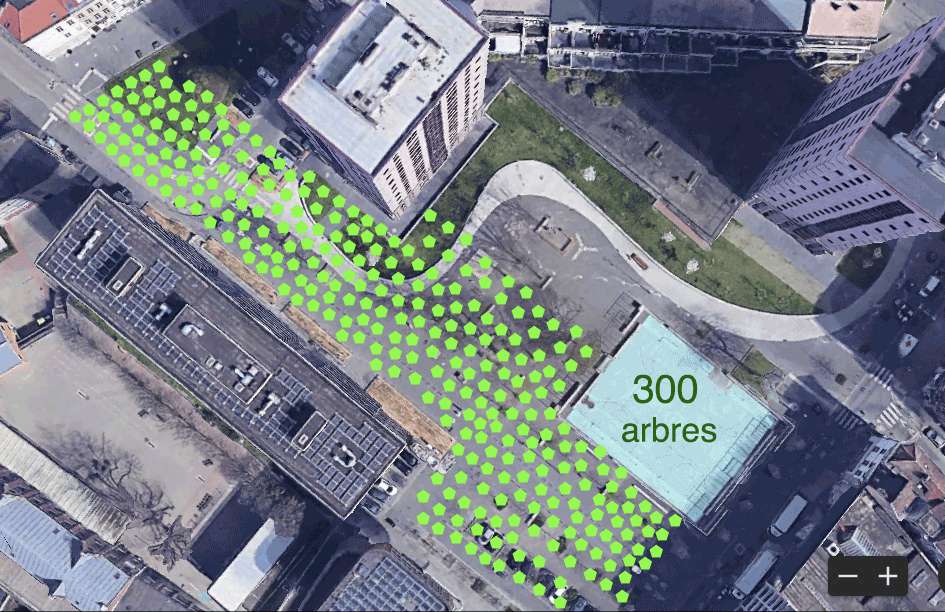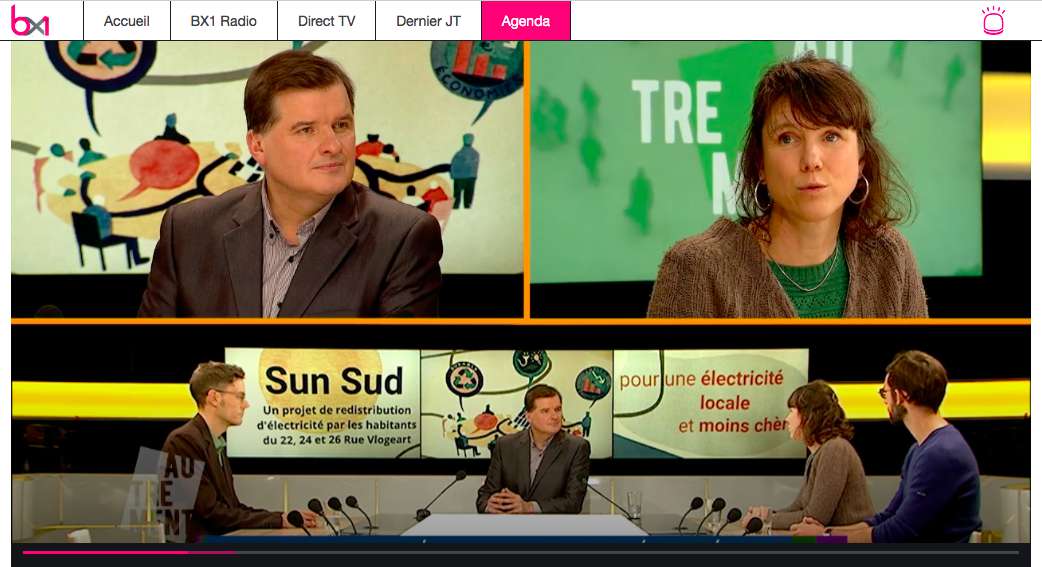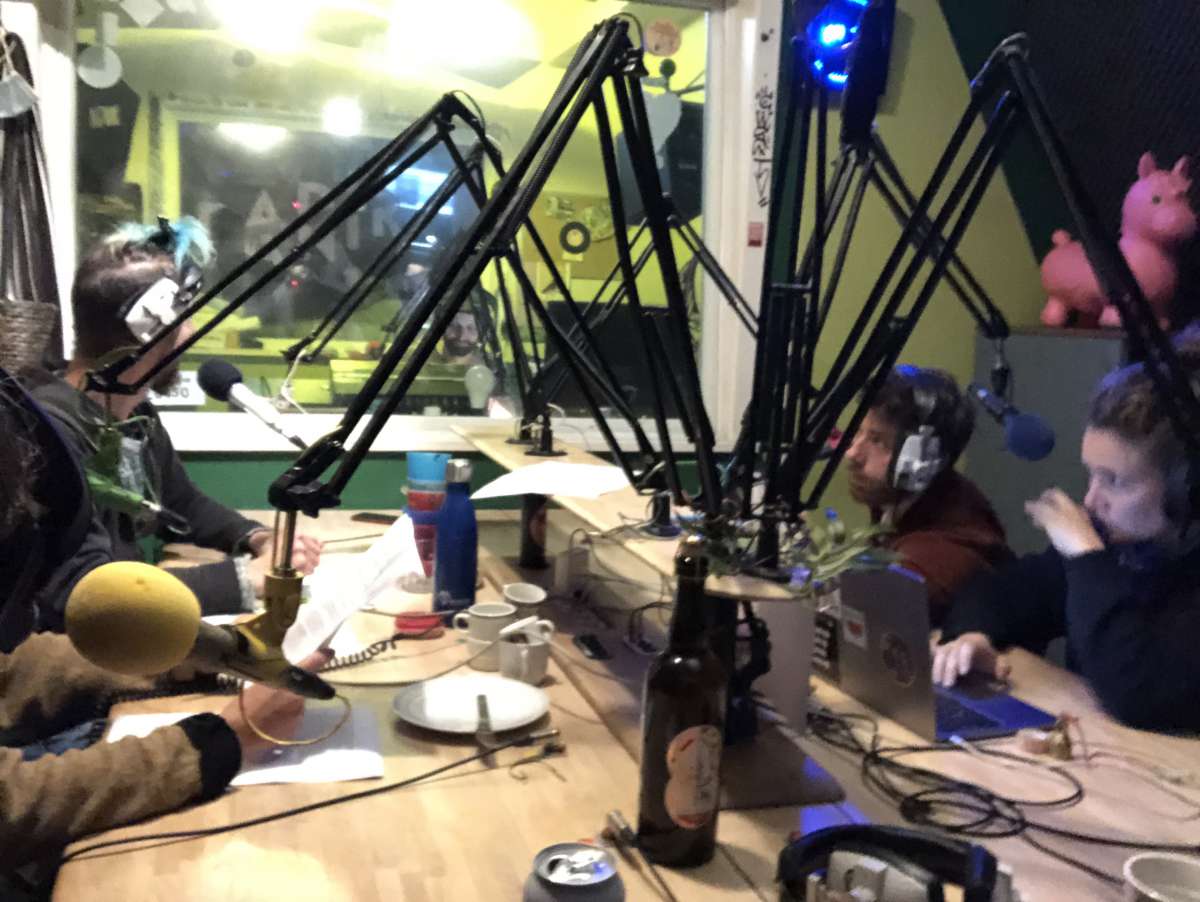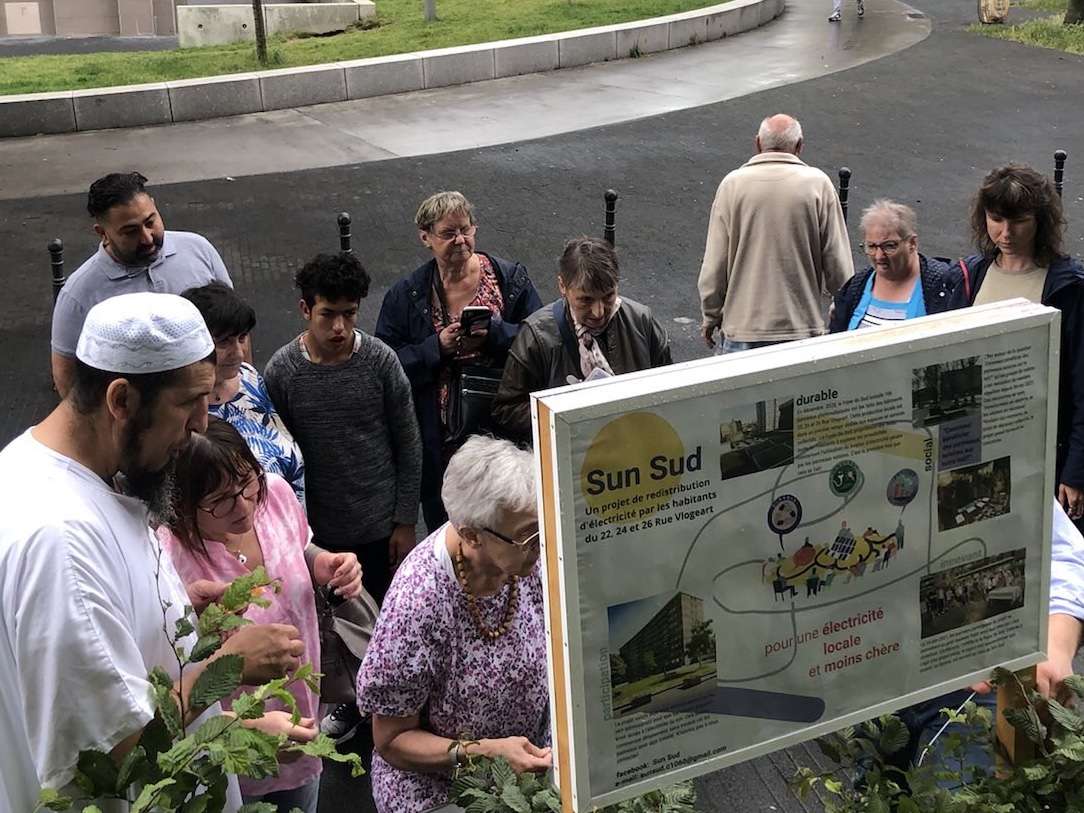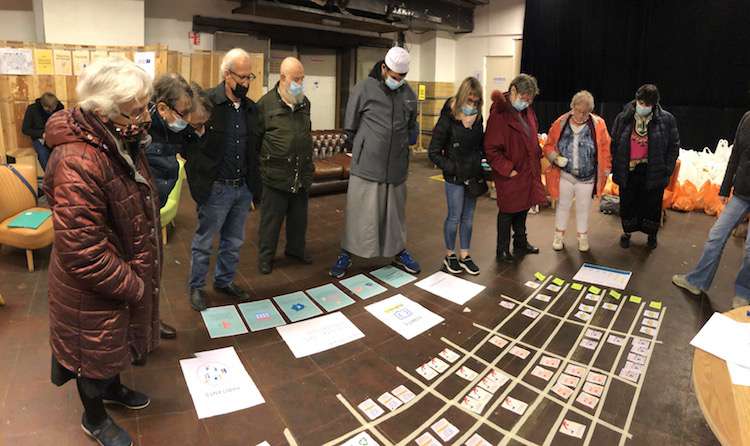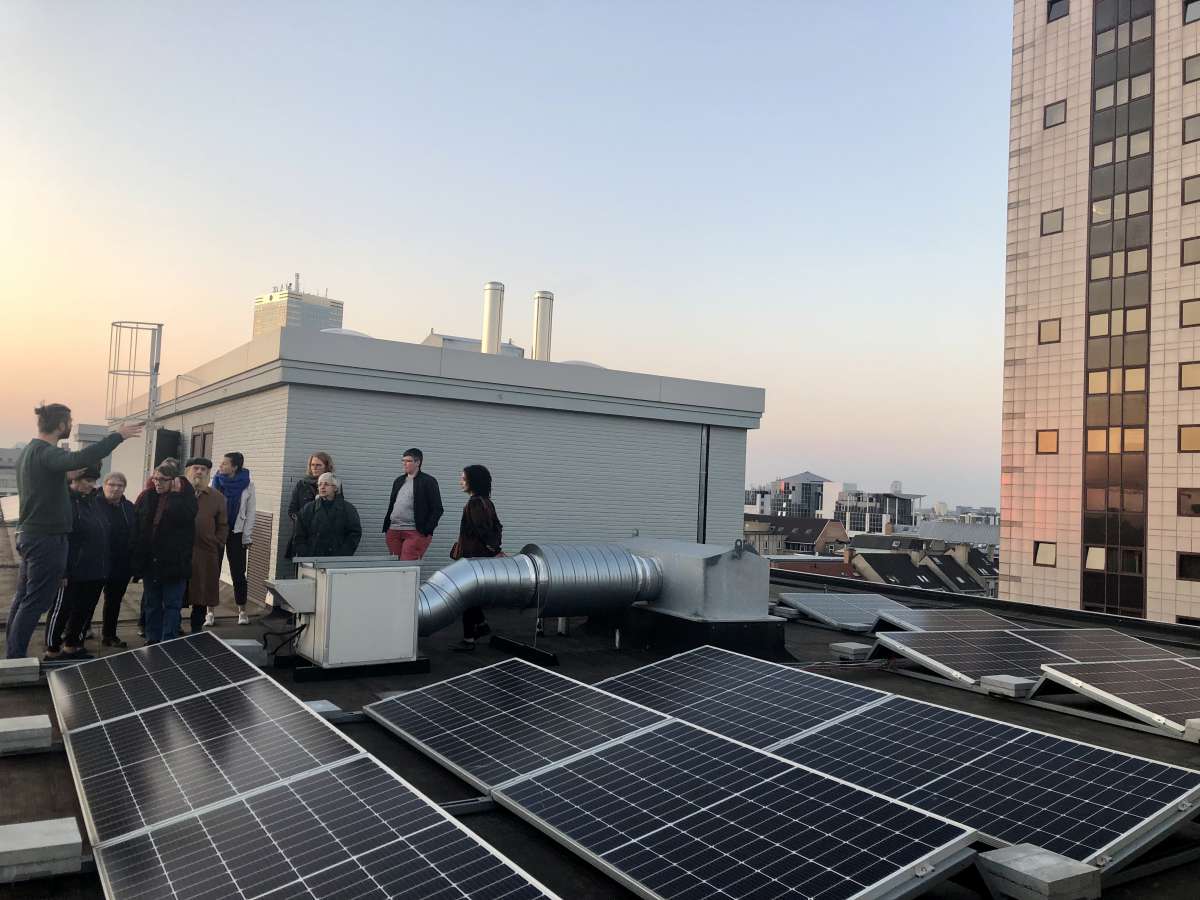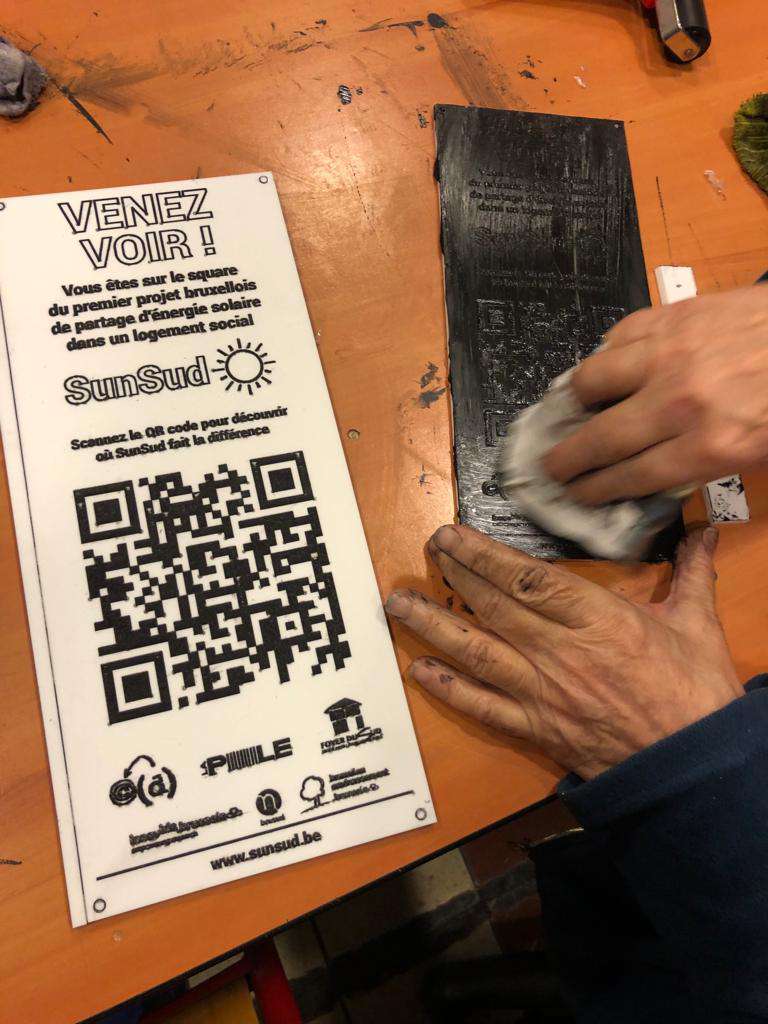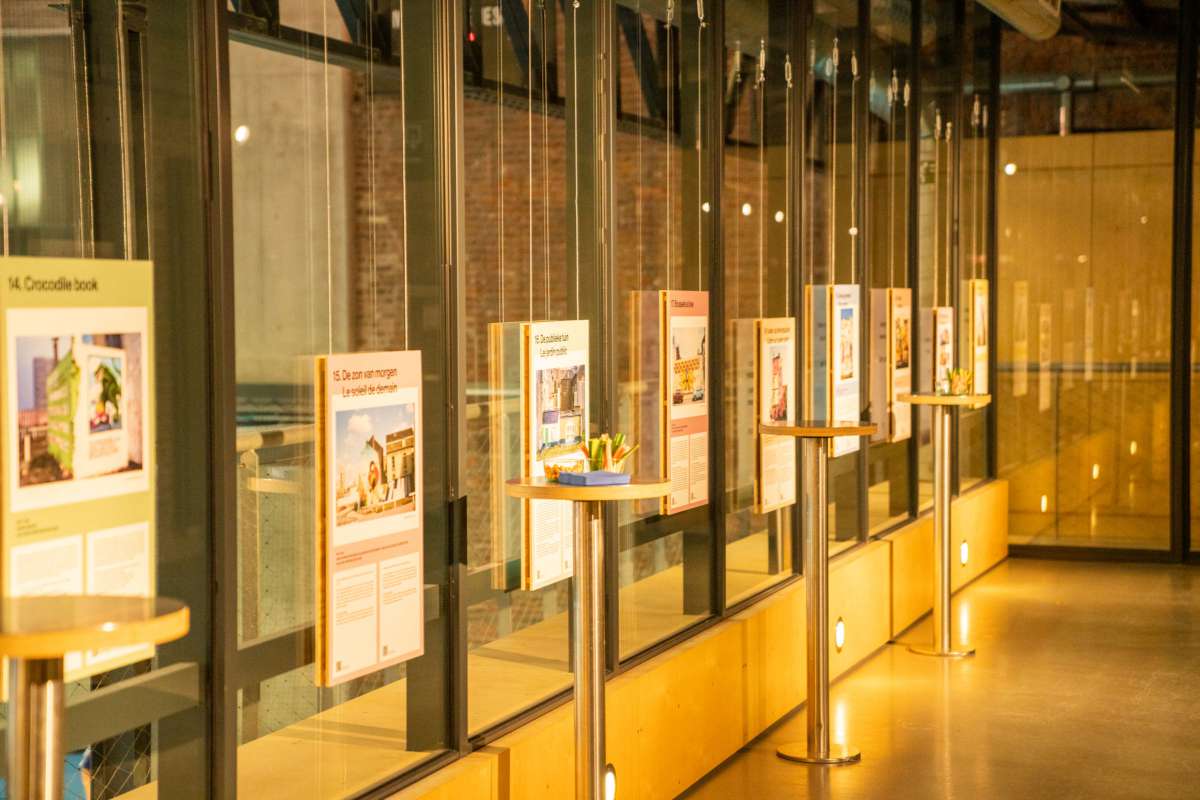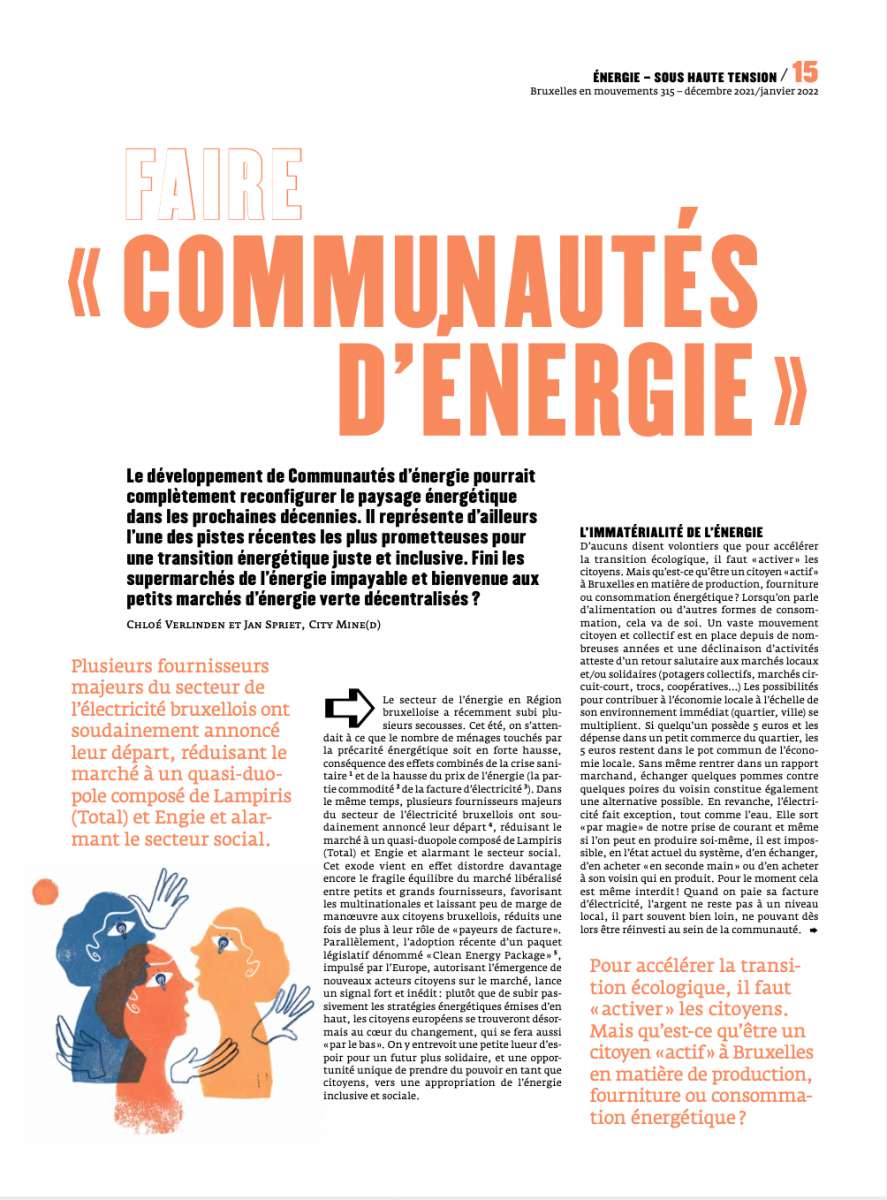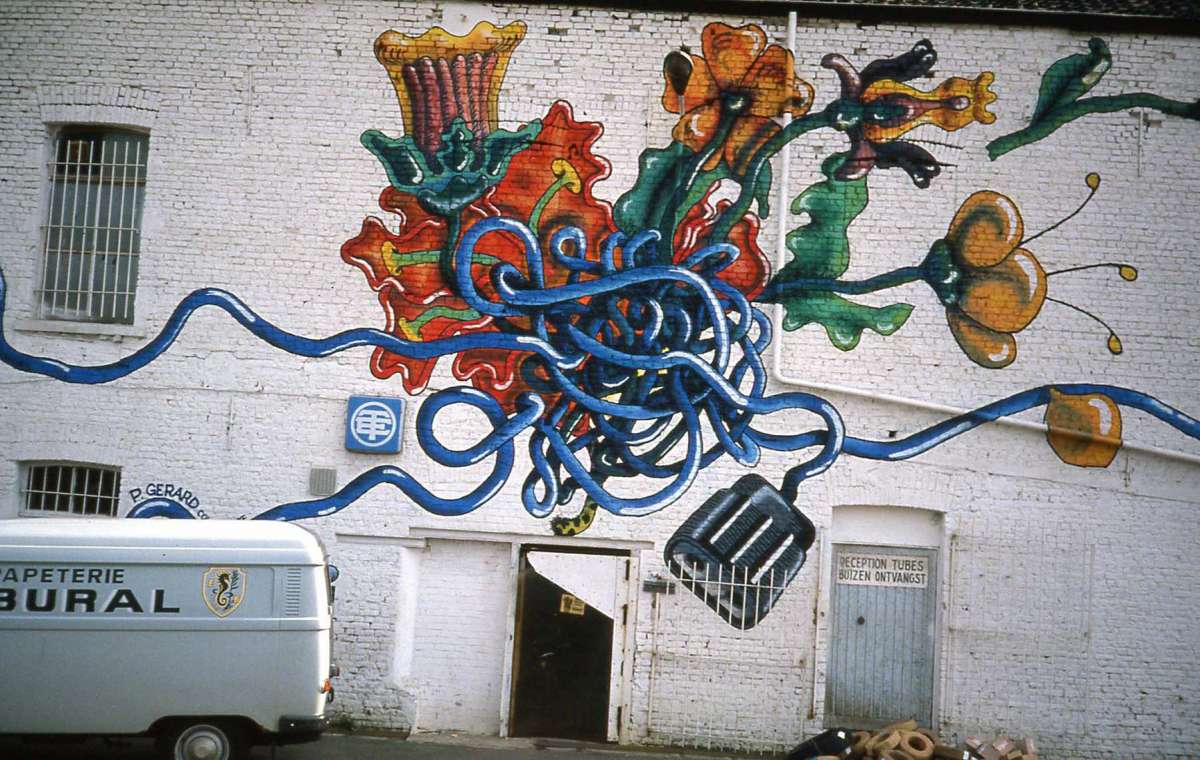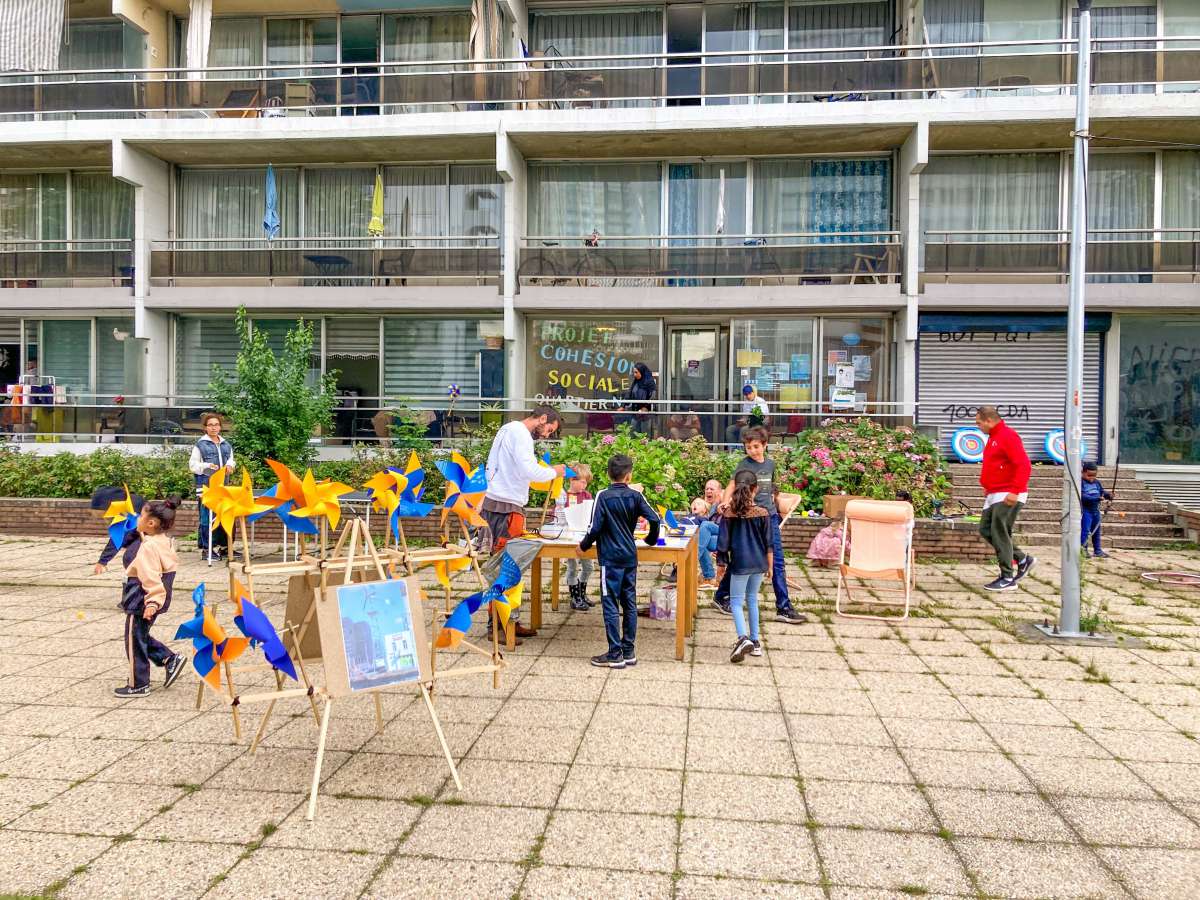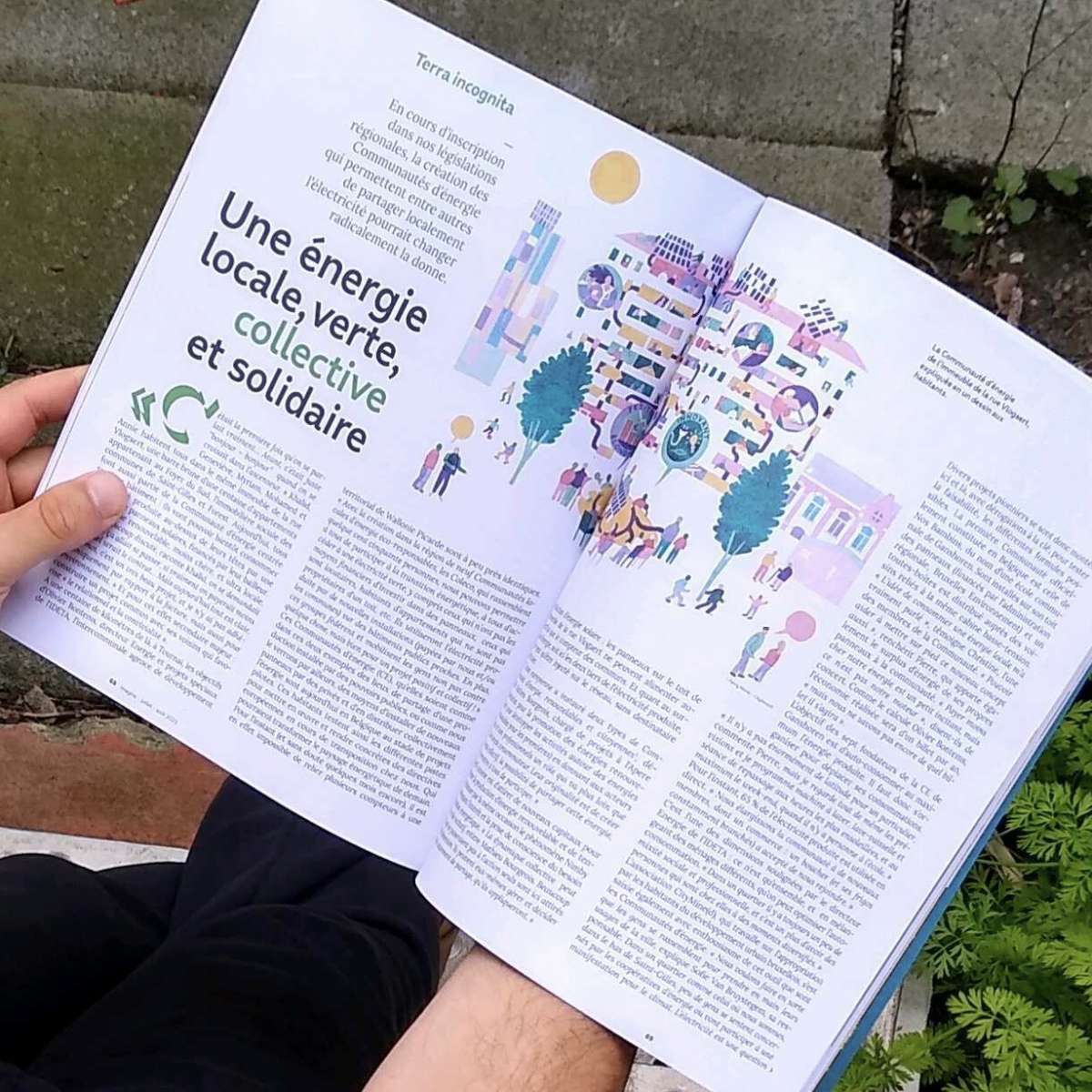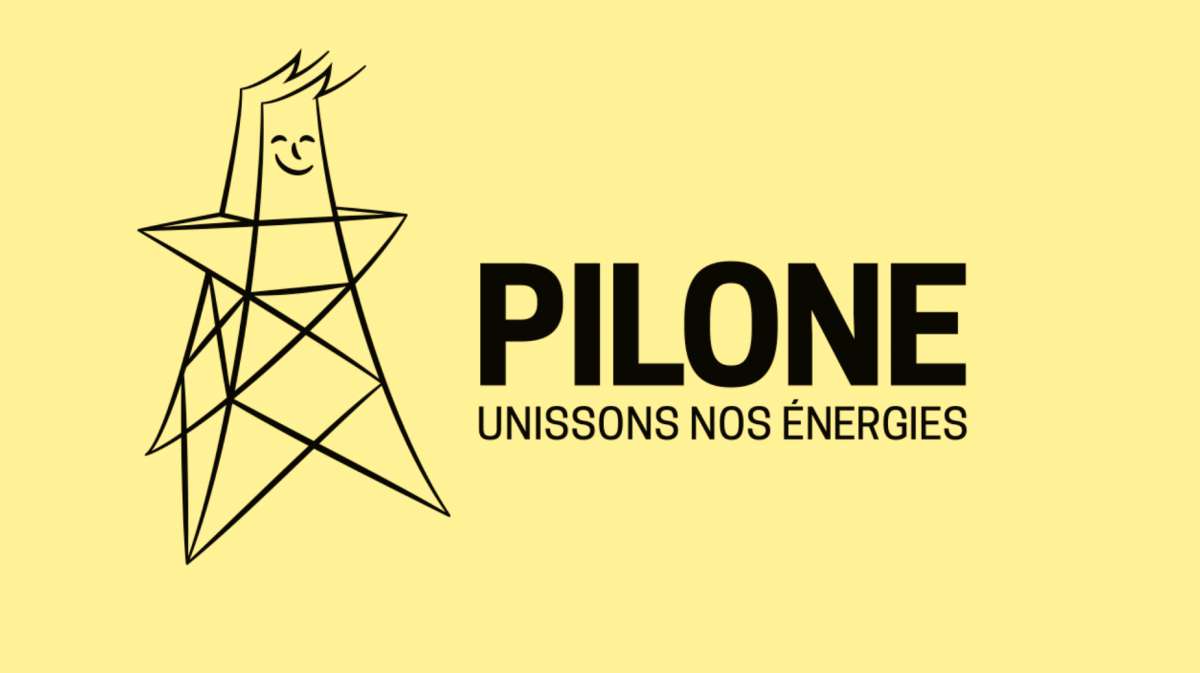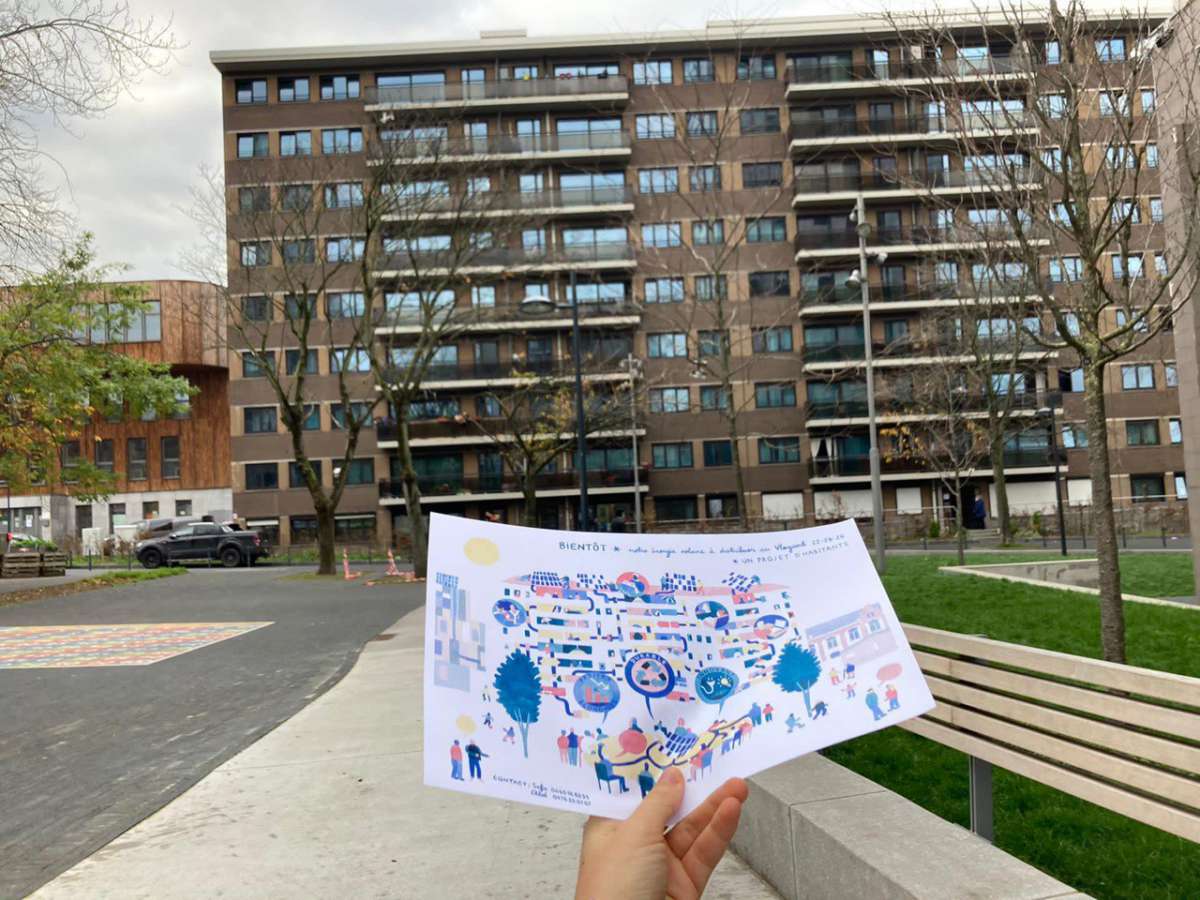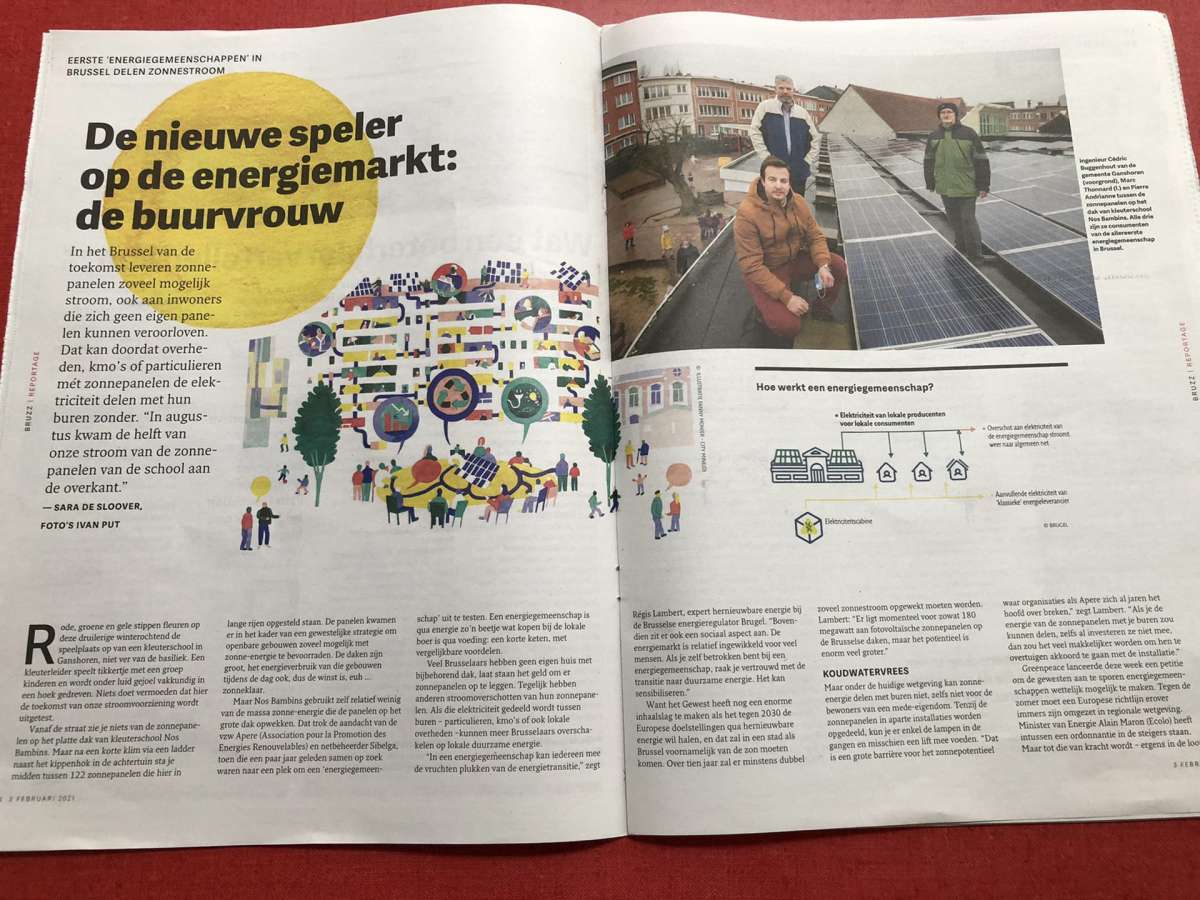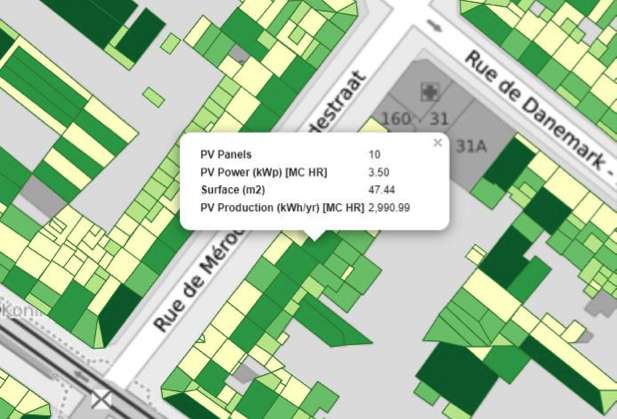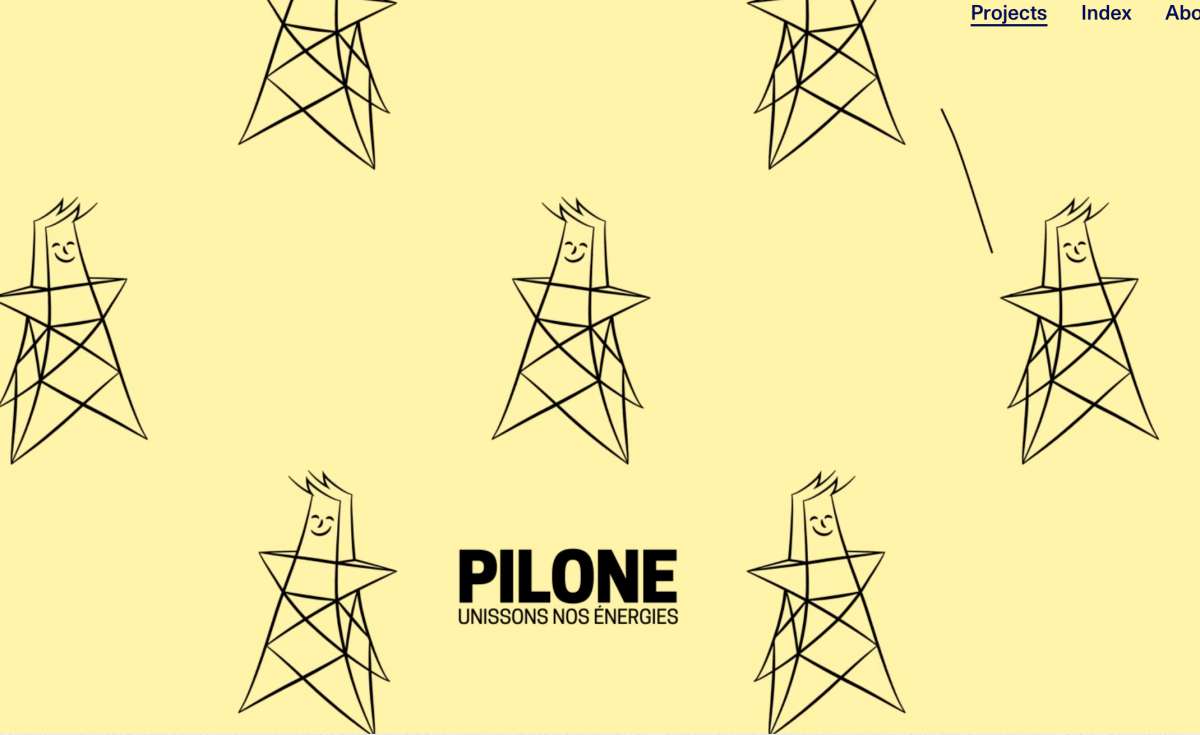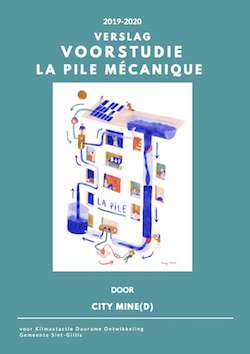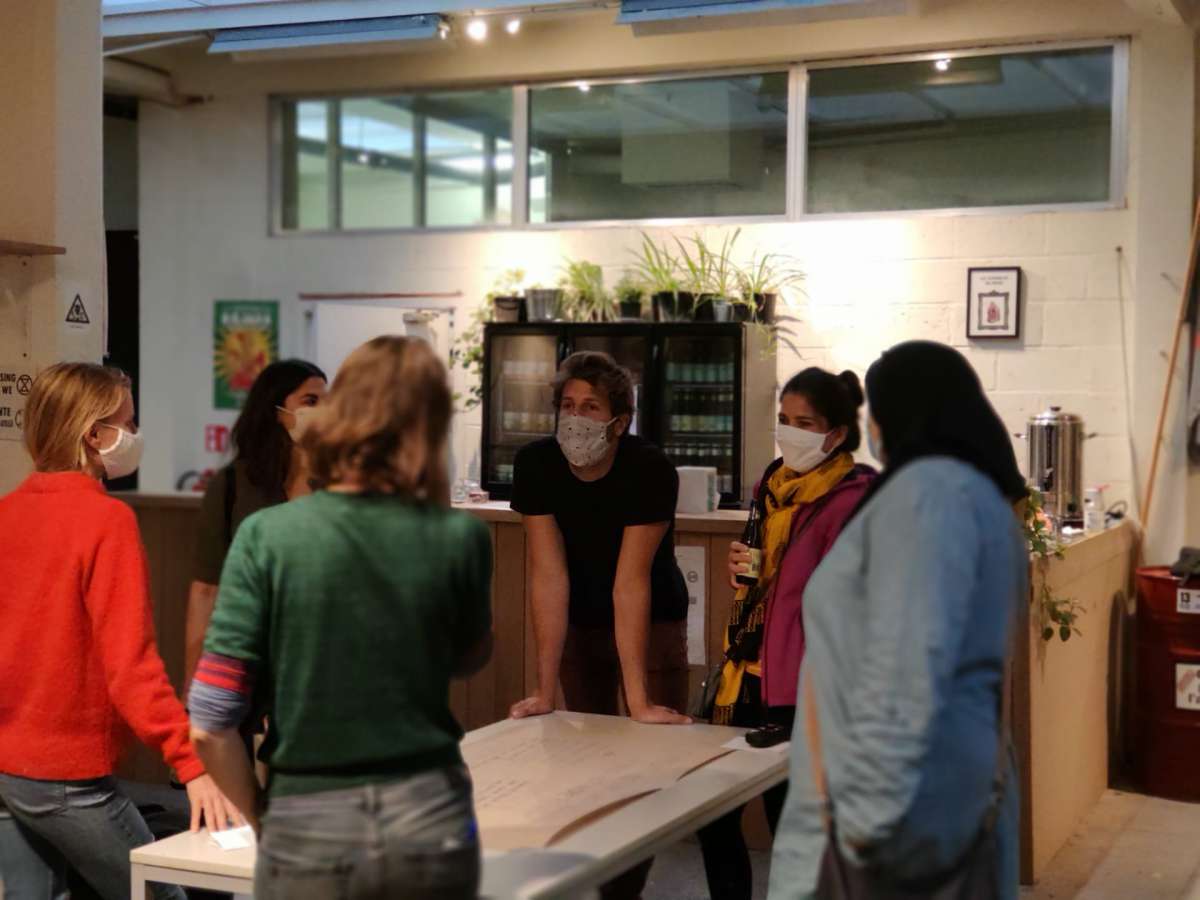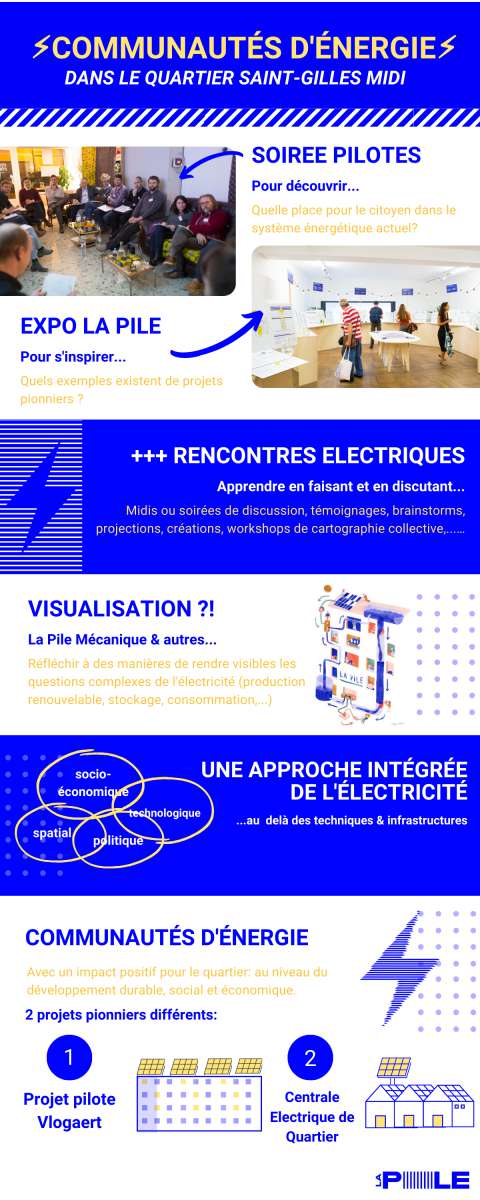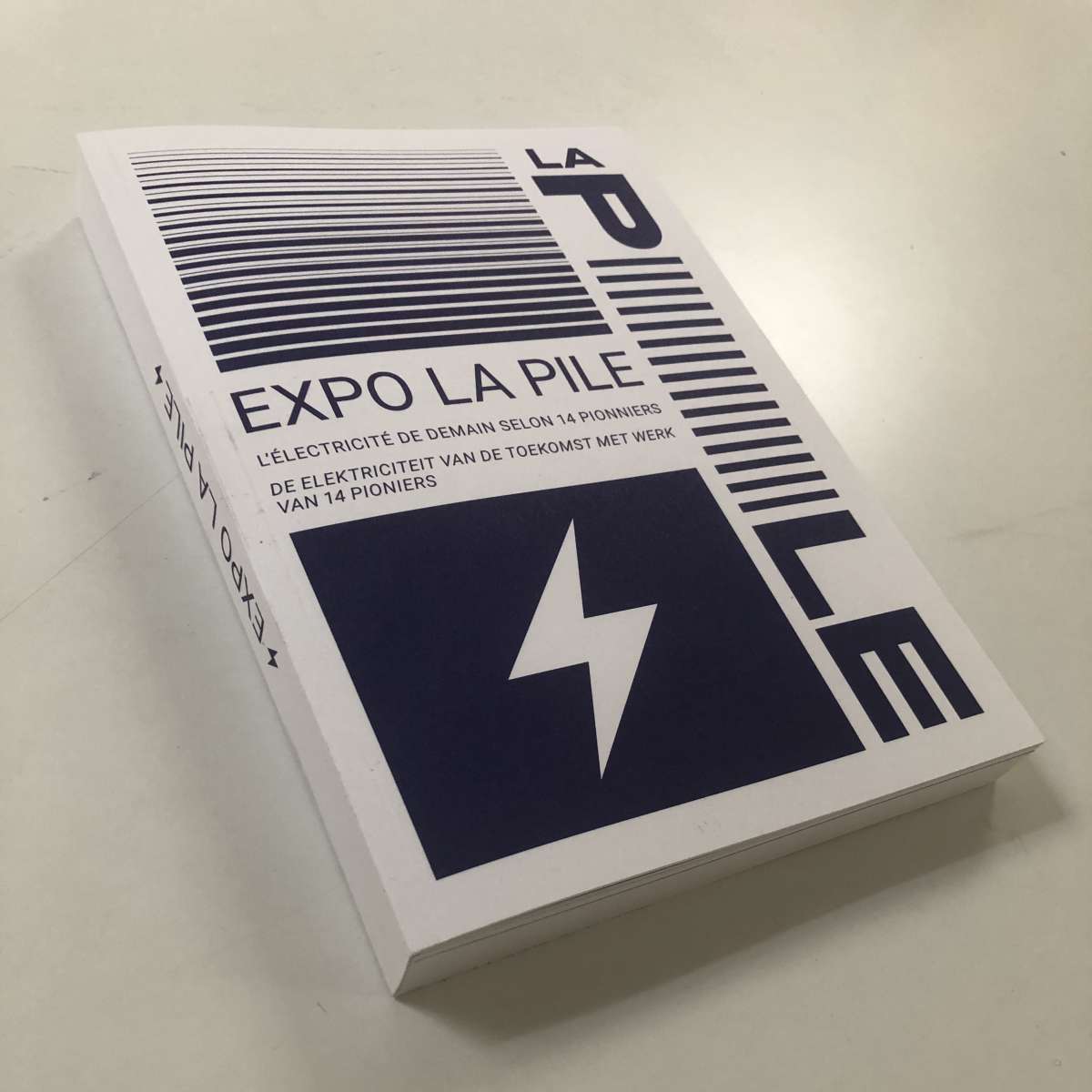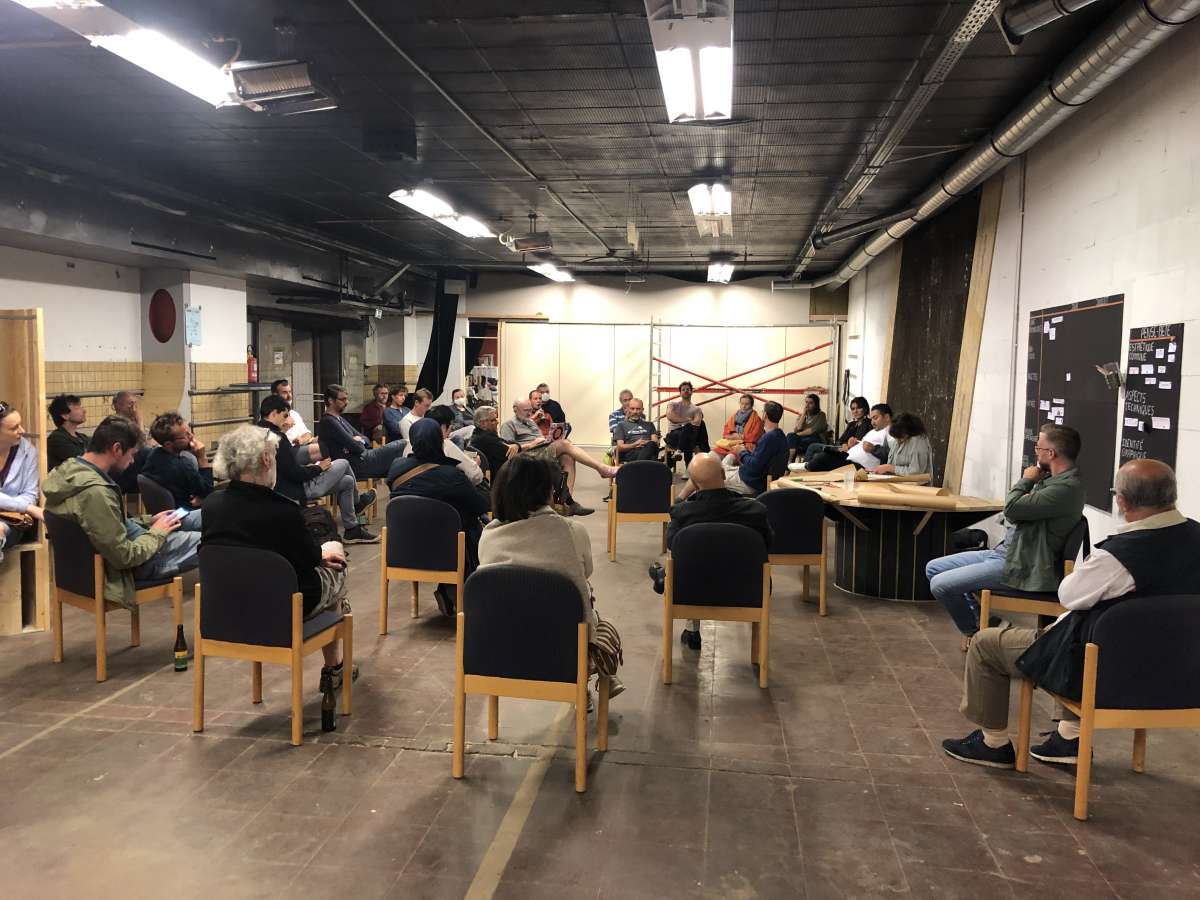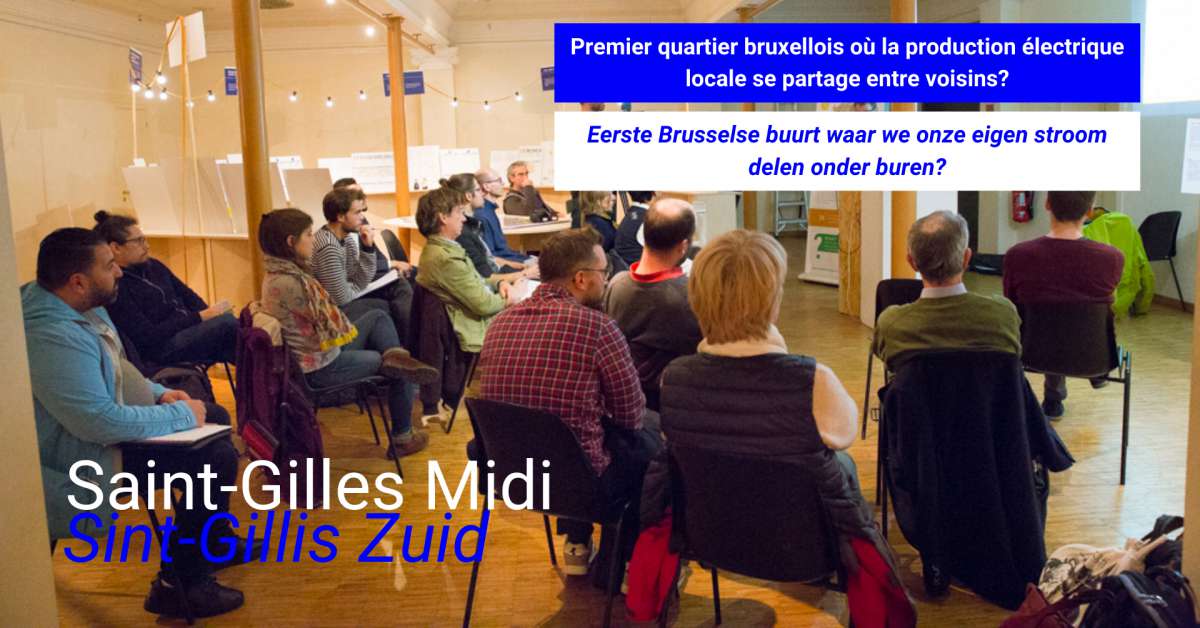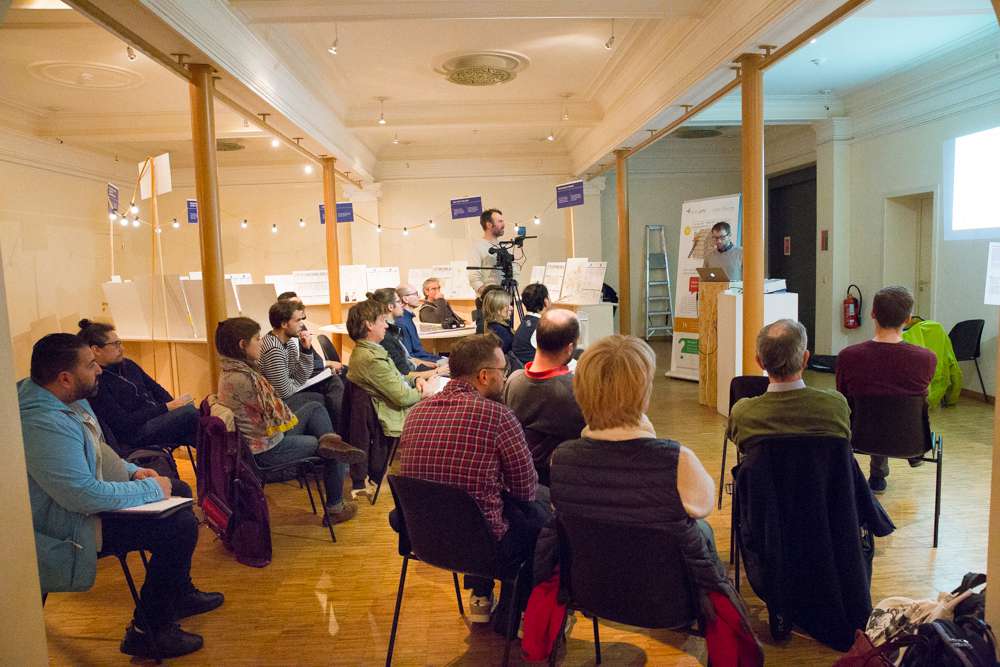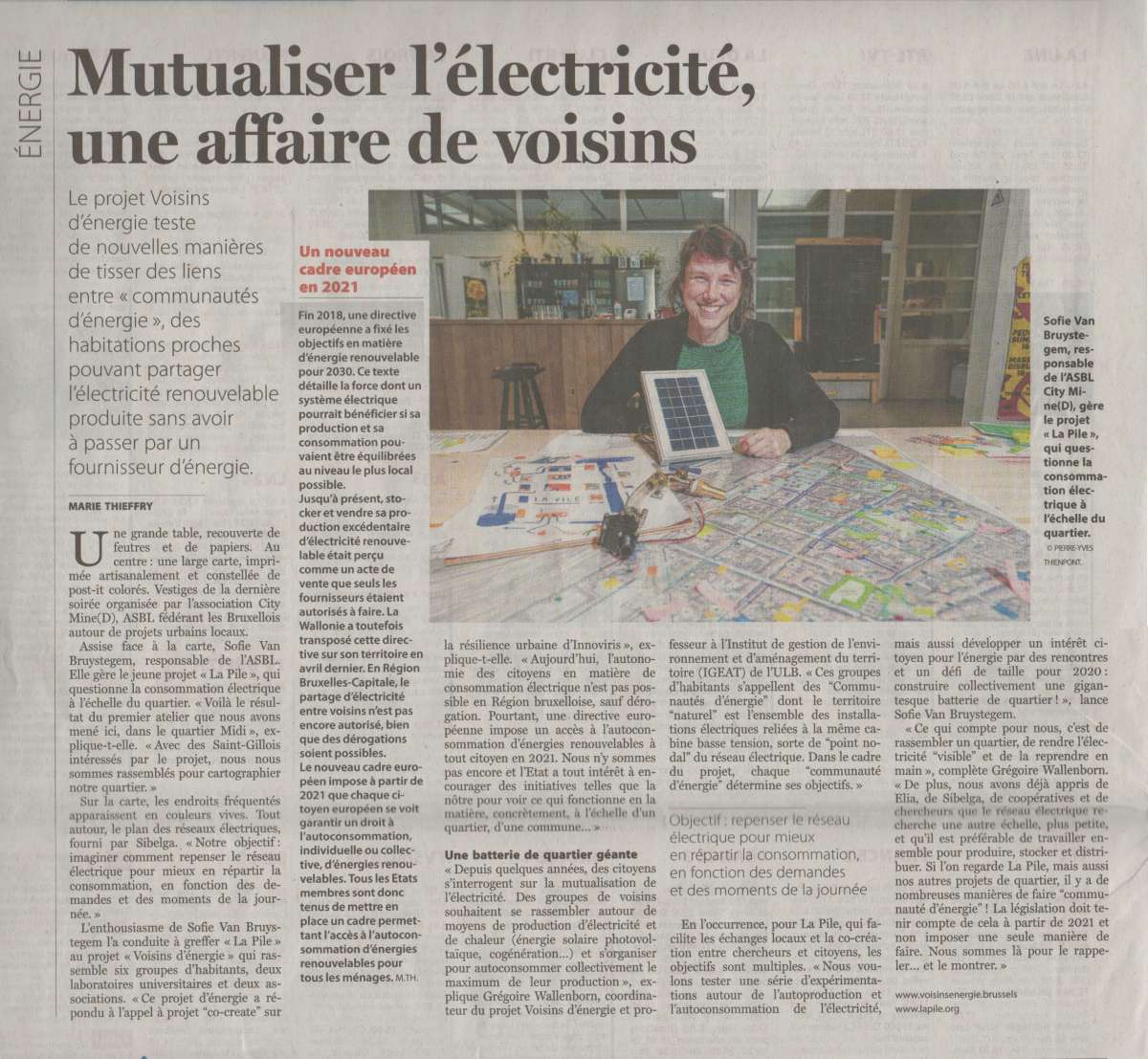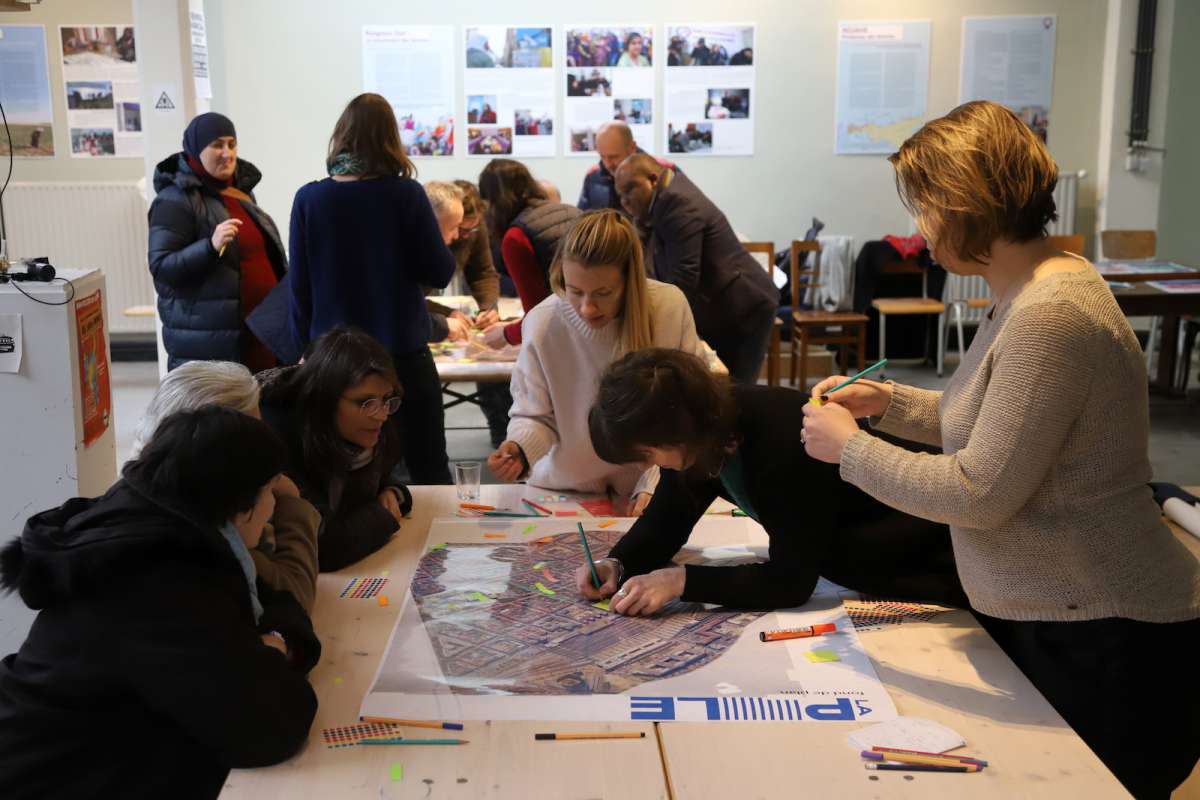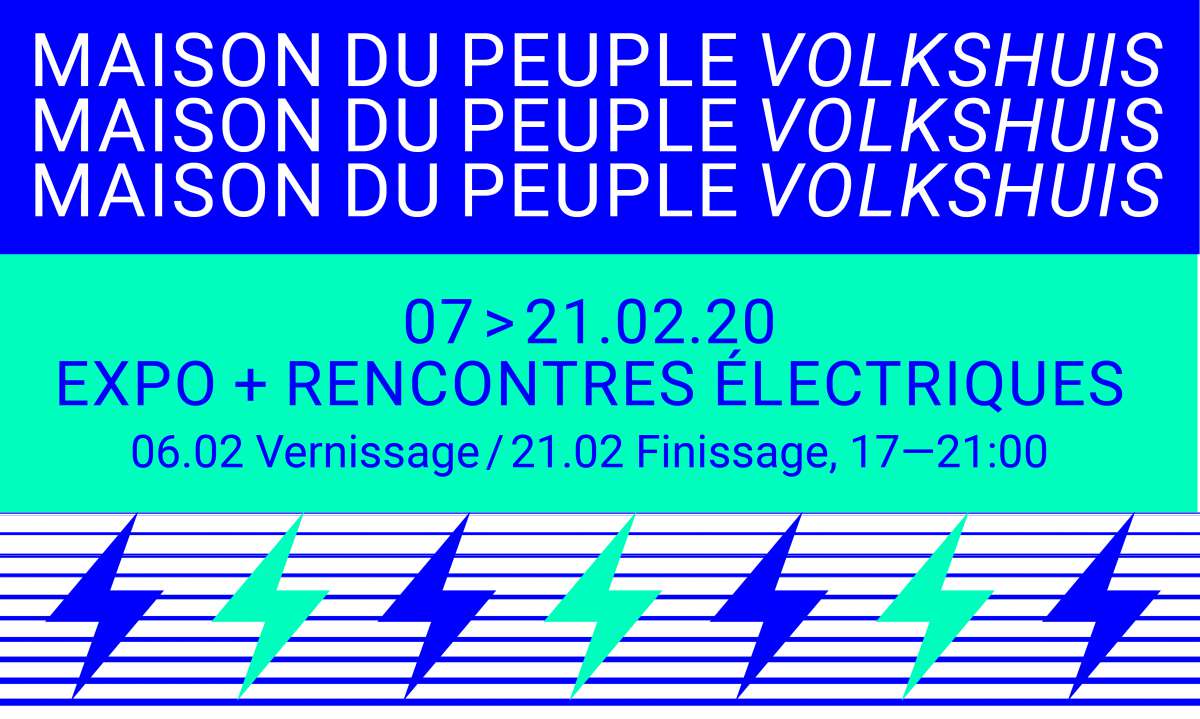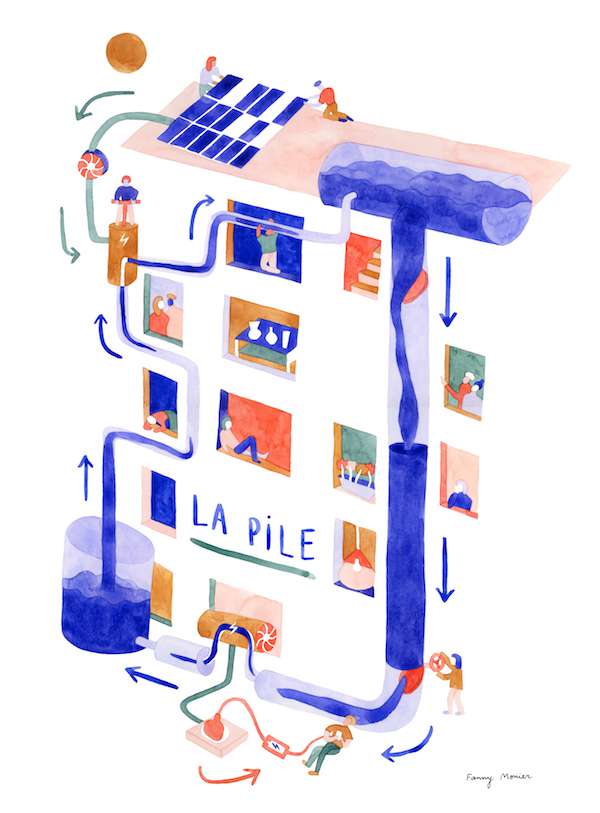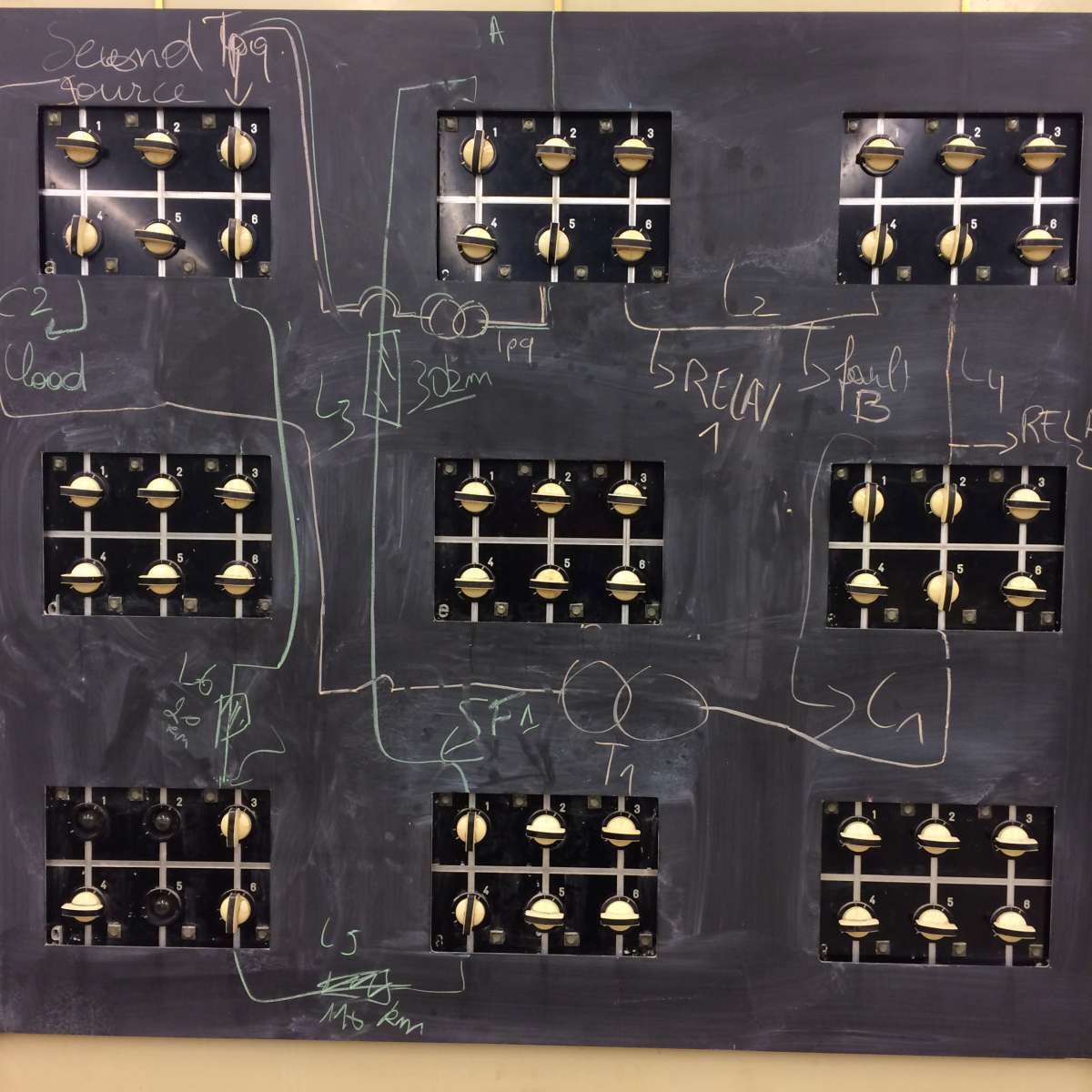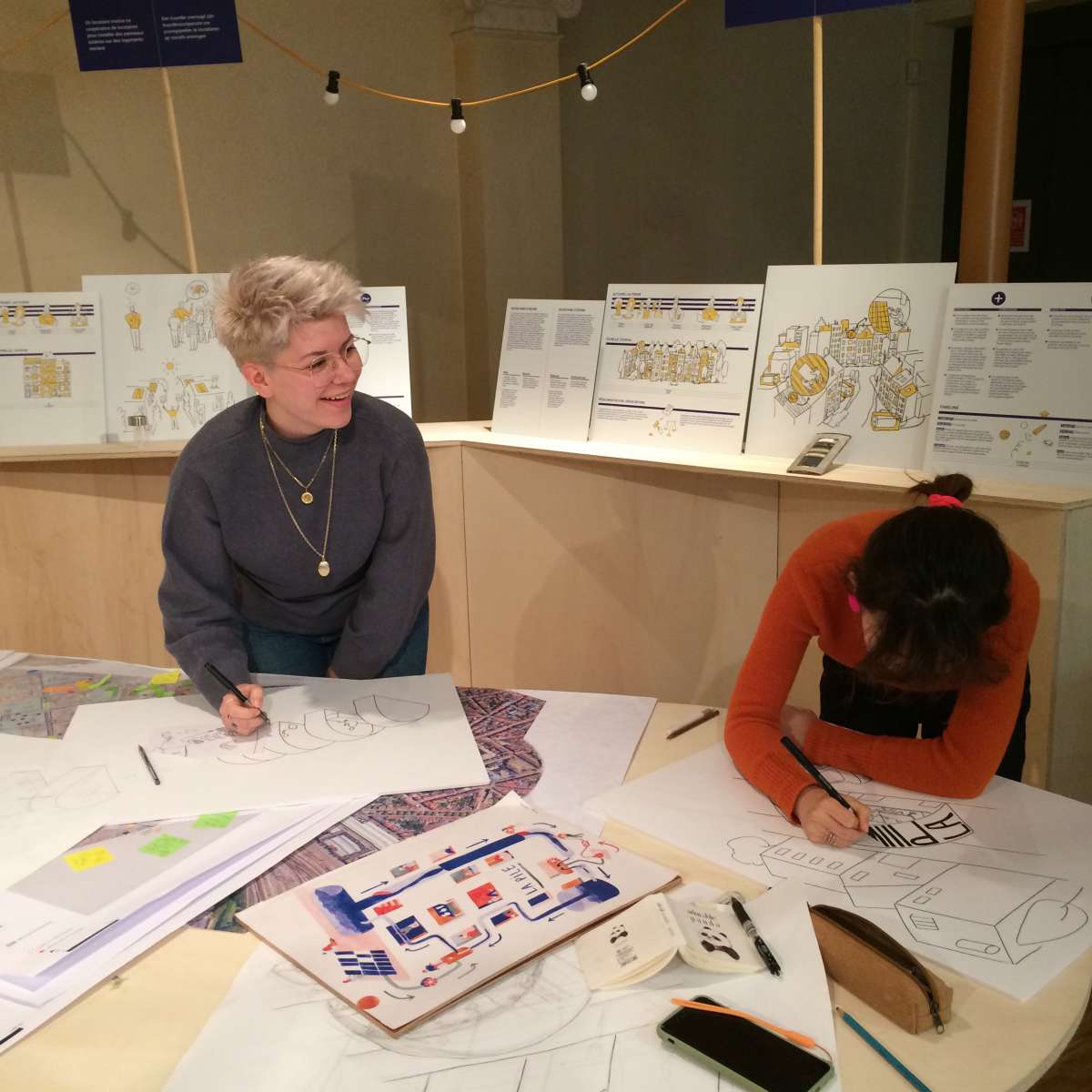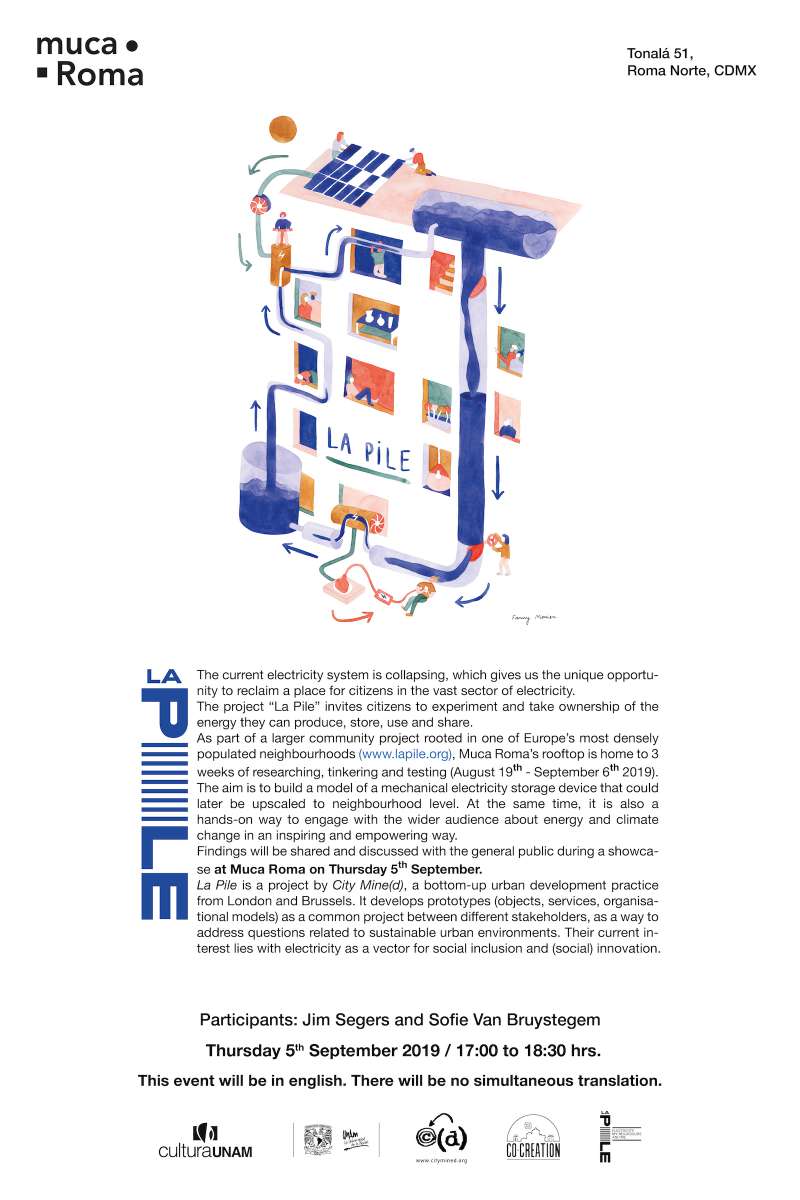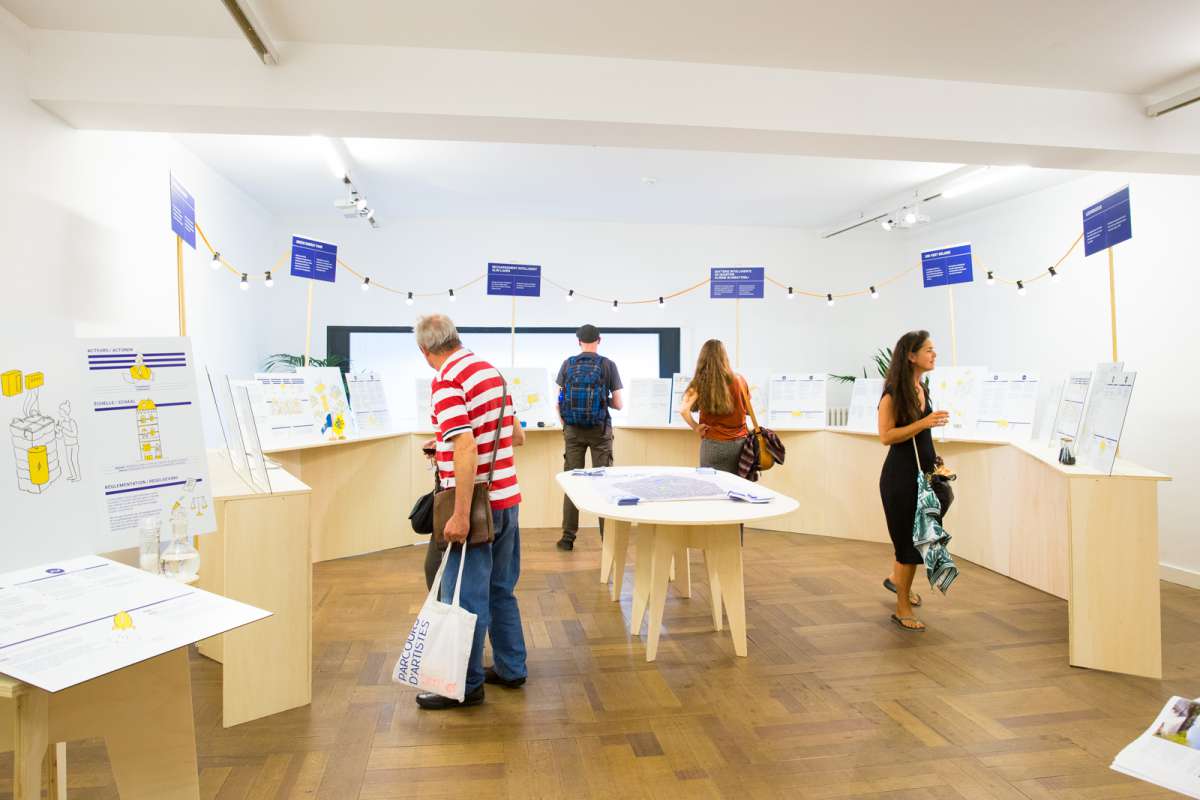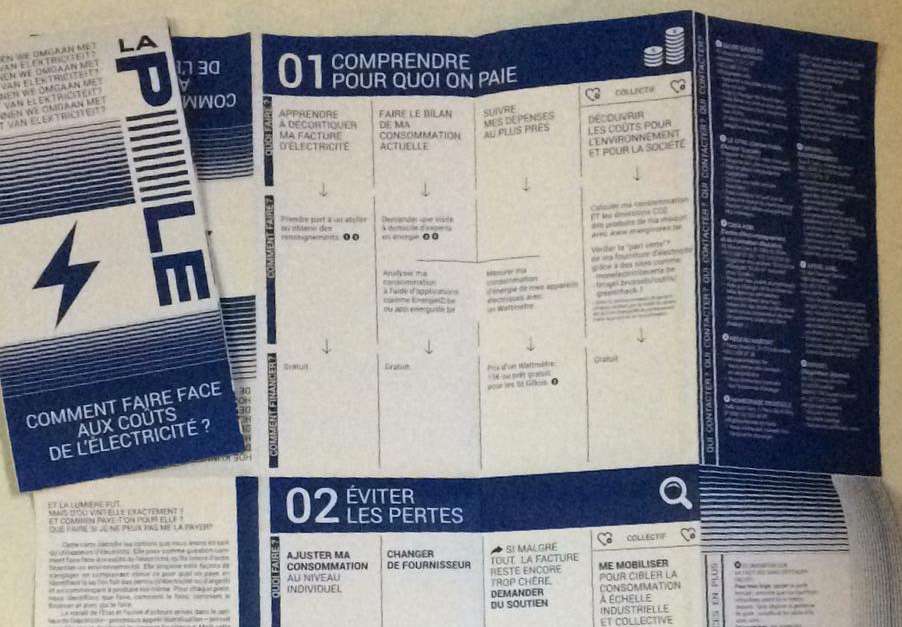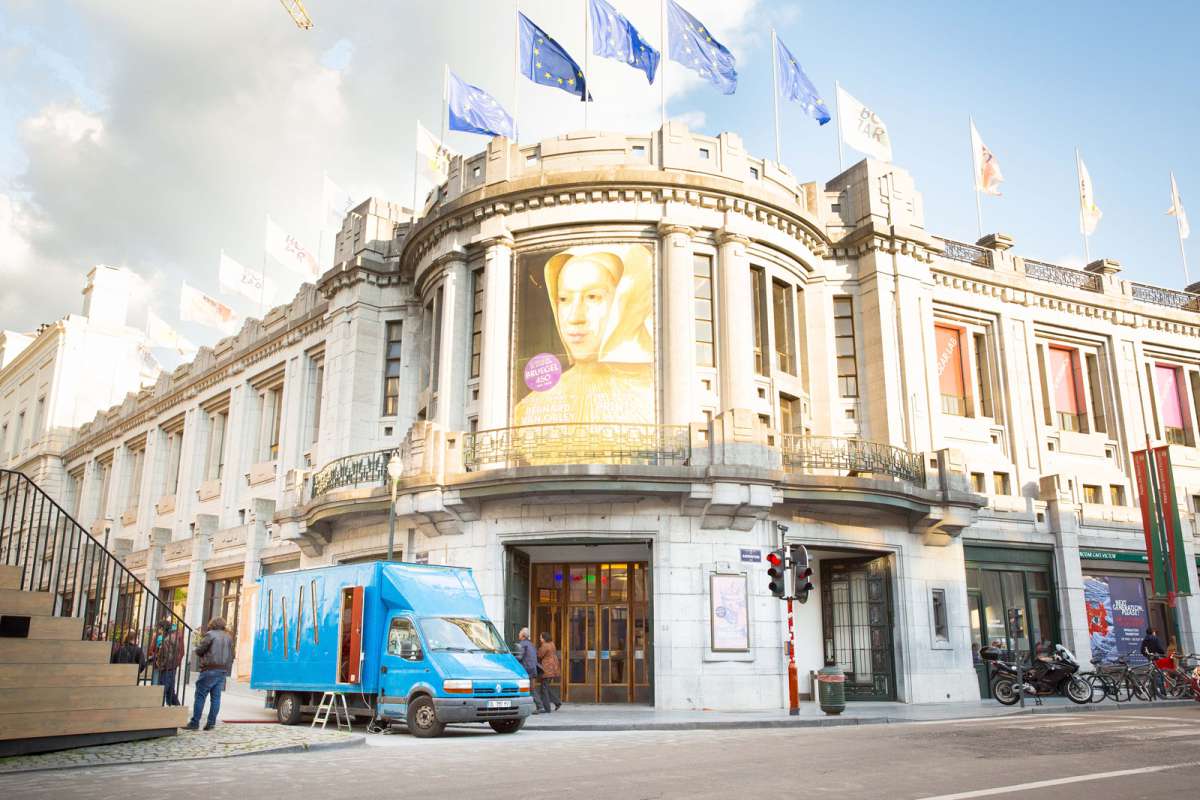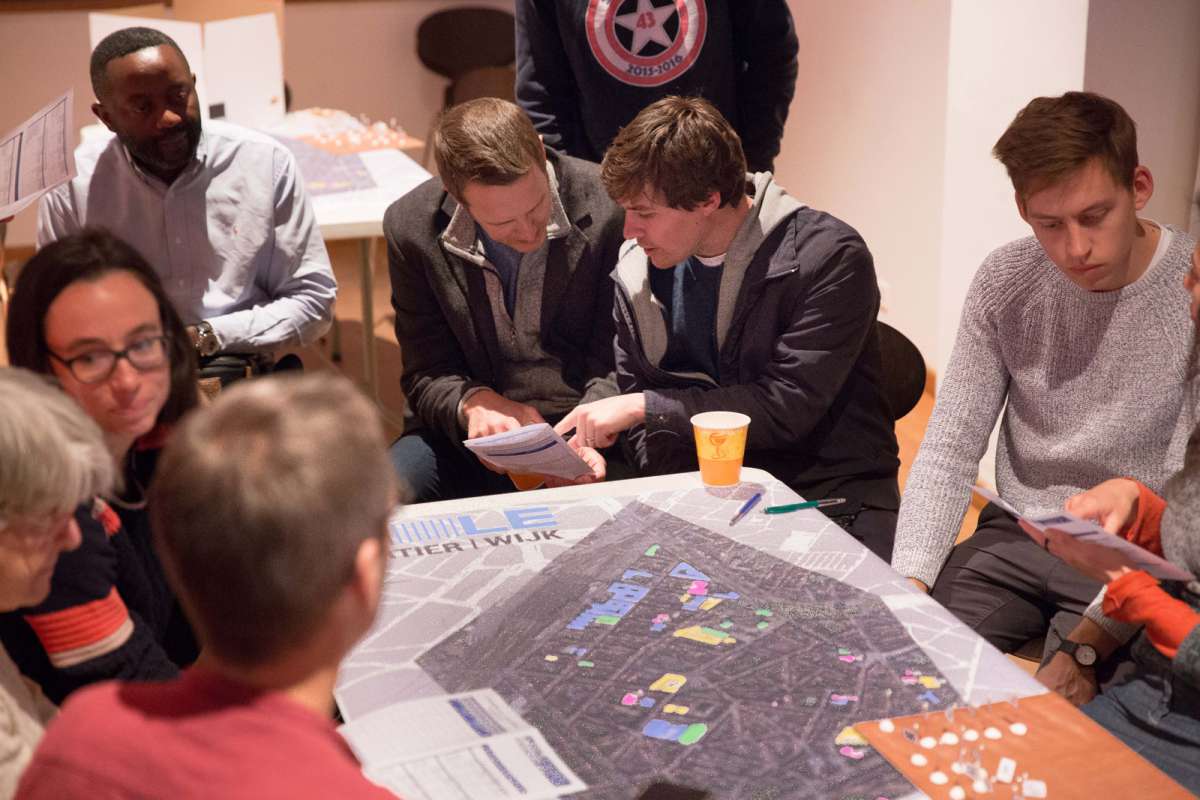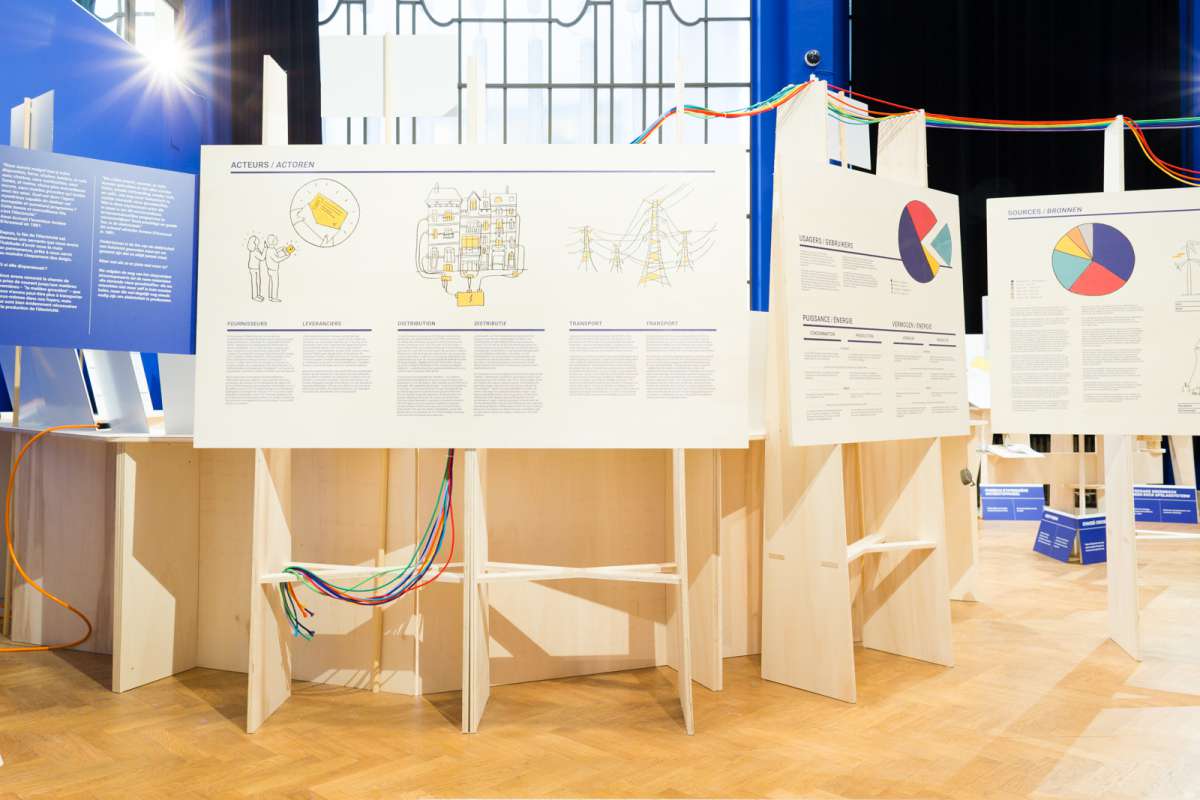SunSud - what mattered (story, learnings, data, strategies, tools)
At City Mine(d), it’s all about change. Reimagine urban environments adapted to the aspirations and needs of its inhabitants and users. Aiming to make them more future proof, anticipating opportunities and friction to come. Together, with all those having a stake, in an open-ended, error-friendly and collaborative way.
Since 2018, we started a trajectory called “La Pile” (meaning the battery or pile) focussed on energy in the city. How it’s used, produced, distributed. How to make it more local and collective and less polluting or pricy. And how to not leave access to clean energy to arbitrary conditions like owning a well exposed roof or having the means to invest in private solar power production.
Two elements quickly became drivers of the La Pile experiments: “cable communities” and “energy communities”. Whereas the first is the name we gave to a group of +/-150 households, schools, local enterprises or shops, all linked by the same low voltage distribution cable (or feeder); the second is a legal name given to a new player on the energy market: “energy communities” organise collective and citizen-driven energy actions that help pave the way for a clean energy transition while moving citizens to the fore.
Both make collaborations among neighbours self-evident.
SunSud took shape against this backdrop. The challenge: modeling Brussels first energy sharing project in a social housing block in the Midi neighbourhood.
Looking at what comes out of the socket, and how - Collectively - And than improve it.
We left off with furrowed brows regarding energy sharing itself (because of its great complexity and -in 2020 still- relatively little economic benefit). Where the levers seemed to lie mainly, was in the opportunity to look not just in one's own plate, but together, at what comes to the table and how.
Especially for people who are systematically pushed to the margins (with voices often left unheard), this turned out to be an excellent opportunity to get involved in the creation of such a spearhead project, and to take on a role in the energy transition.
Not a luxury in a city with roughly 1/3 of the population living in energy poverty.
Success?
Despite various waves of Corona outbursts and lock-downs, a solid group of tenants took on the challenge, and after 2 years, SunSud is considered a big success in the frame of energy transition.
But why is it also a big success to us, City Mine(d), one of the driving partners having no stake whatsoever in the energy landscape?
1. Tailor made change Convinced the outcome would be more interesting, we involved the tenants from the start, and did not think for them or instead of them.
2. Propellor of emancipation In the relatively clear Brussels framework of energy sharing in 1 building, energy sharing encouraged neighbours to learn a lot about renewable energy and how to use it optimally. Being entrusted with an important task, is a source of (self-)confidence and made participants rise above themselves
3. Opportunity for collective organisation and decision making Managing an important and complex task like redistributing local and renewable energy, requires to deal with complexity, diversity of opinions and conflicting interests. It is therefore required, but also motivating to learn how to organise and to deal with conflict.
Some concrete illustrations
No one is obliged to take part in the solar electricity sharing project. Tenants have the choice to sign up. This freedom, which we defend, involves both risks and opportunities.
Through the SunSud project, we have observed that there is a risk that local, green and cheap electricity will not reach the tenants who need it most, despite the possibility of participating in the energy sharing project. Here we describe the causes we observed and how we dealt with them.
In a nutshell: by deploying a collective and collaborative approach that starts with meeting people and listening to them. Going through a learning trajectory, adapted to their questions, a core group of tenants succeeded in taking ownership of energy and sharing issues and acquiring organisational, discussion and decision-making skills. This has made it possible to set up a sharing project "tailored" to their needs and aspirations, and to make it profoundly inclusive and social.
Read more (in French):
Barriers to access
Strategies and tools
What happened, how and why? story, learnings, data
Learn everything about the set up of the initiative, its objectives, the process we followed (2020-21).
Look into the data after 1 year of energy sharing (2022).
Read about our learnings and conclusions (2023).
-> download the powerpoint (slides in French, notes in English)
What next?
Besides direct social (and by 2023 also economic) benefit, energy sharing is also a unique way to give the future Brussels energy market input from beyond the (already) emancipated middle class. Make energy sharing projects tailor made to local and social needs !
illustration : Fanny Monier
